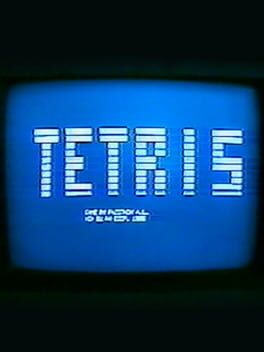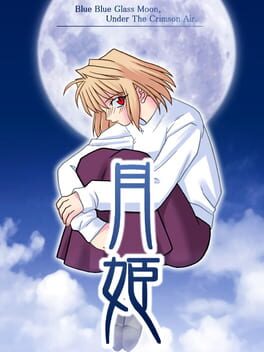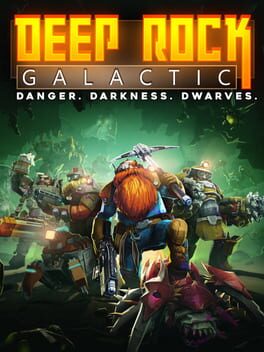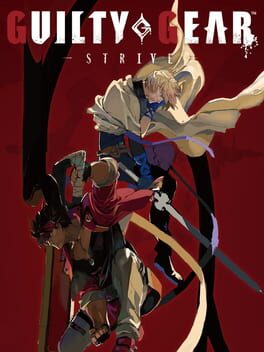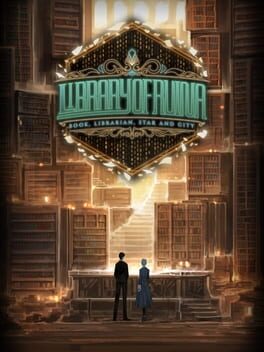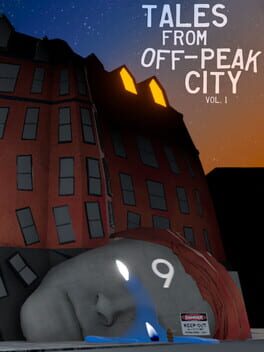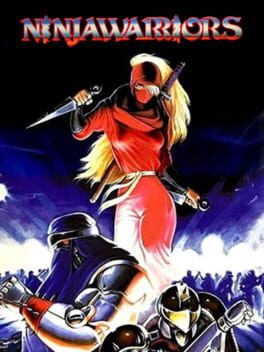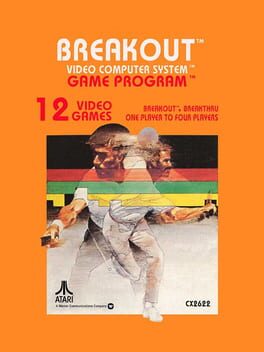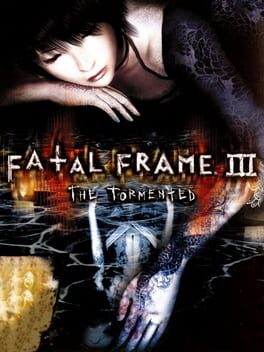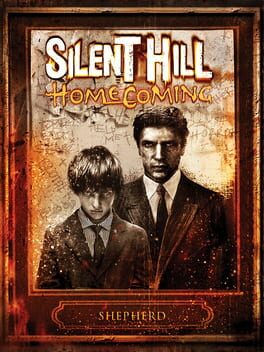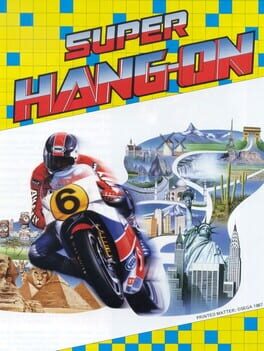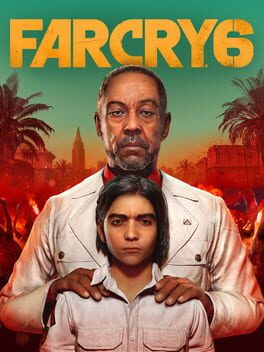FMTownsParty
687 Reviews liked by FMTownsParty
Tetris
1985
It's rather telling that this ur-Tetris operates with the same mechanical elegance as its progeny. I find the consideration of Tetris - and indeed, any game - as a 'perfect game' to be trite, but from the outset Alexey Pajitnov demonstrated with aplomb that Tetris is a perfect idea. The reiteration of gameplay systems necessarily precludes Tetris from an actualised perfection -- who can judge which of its 322+ official releases is 'definitive'?
Yet, with hundreds of versions each expanding on that which came before, one would expect the very first title to be lacking most of what allowed Tetris to be a success. The Electronika 60 release is a monochrome textscape without even the barest flourishes of the Game Boy version. The shrill piezoelectric beeper's pathetic tones are an auditory agony; the ubiquitous whine of the cathode ray tube a tinnital torment. There is no bag randomiser. There is no hold. Rotation is clockwise-only. No T-spins, no back-to-backs, no combos, no garbage, no ghost. One next piece is shown. Surprisingly the hard drop is present, despite its omission from subsequent versions until 2001's Tetris Worlds.
It all matters not. In a cacophony of noise befitting a Ryoji Ikeda installation, I am dealt five Z-pieces in a row. The inconsistent speed increments befuddle me, catching me off-guard. How characters are rendered makes it difficult to consider my board's layout. I am in love. This scant realisation feels pure. I am entranced by it. It is all I have ever needed and wanted.
Yet, with hundreds of versions each expanding on that which came before, one would expect the very first title to be lacking most of what allowed Tetris to be a success. The Electronika 60 release is a monochrome textscape without even the barest flourishes of the Game Boy version. The shrill piezoelectric beeper's pathetic tones are an auditory agony; the ubiquitous whine of the cathode ray tube a tinnital torment. There is no bag randomiser. There is no hold. Rotation is clockwise-only. No T-spins, no back-to-backs, no combos, no garbage, no ghost. One next piece is shown. Surprisingly the hard drop is present, despite its omission from subsequent versions until 2001's Tetris Worlds.
It all matters not. In a cacophony of noise befitting a Ryoji Ikeda installation, I am dealt five Z-pieces in a row. The inconsistent speed increments befuddle me, catching me off-guard. How characters are rendered makes it difficult to consider my board's layout. I am in love. This scant realisation feels pure. I am entranced by it. It is all I have ever needed and wanted.
Tsukihime
2000
"contest not with monsters lest ye become a monster, and if you spot long a white woman, the white woman spots also."
- frederick neetchah
the parts of this that really hit do so to such an extent that I was both genuinely moved and got that someone-walking-over-my-grave adjacent sensation of "oh this would have Done Shit to me as a teenager" but everything else really just gave me a new appreciation for fatomoru as a group of people looking at this and saying "hold my beer I can hurt you way worse and more gay-ly and with none of the gratuitously ill-considered sexual assault as gratification."
Arc and Hisui/Kohaku routes the obvious standouts and the opening and closing segments with Aoko put a perfect lil' bow on the thing, so bring on witch on the holy night I'm sold lol
- frederick neetchah
the parts of this that really hit do so to such an extent that I was both genuinely moved and got that someone-walking-over-my-grave adjacent sensation of "oh this would have Done Shit to me as a teenager" but everything else really just gave me a new appreciation for fatomoru as a group of people looking at this and saying "hold my beer I can hurt you way worse and more gay-ly and with none of the gratuitously ill-considered sexual assault as gratification."
Arc and Hisui/Kohaku routes the obvious standouts and the opening and closing segments with Aoko put a perfect lil' bow on the thing, so bring on witch on the holy night I'm sold lol
Deep Rock Galactic
2018
i can't say i anticipated enjoying this as much as i do but sometimes my tastes skew far more plain than i posture them. DRG is really charming. in my eyes it's the first cooperative game since L4D2 to really match that game's quickfire energy with accessible yet layered strategizing; the four available classes are idiosyncratic to such an extent that you might feel naked in any given operation without even one of their toolkits. it smartly pairs lite-monster hunter mission variability & team synergization with 2010's procgen & terrain destructibility to create these delicious scenarios where blue-collar panic is the norm as you shuffle and squirm in pitch-black subterranean sprawl. it's you and your dwarven brothers against hordes of starship troopers bugs, a wealth of toxic environs, and really all manners of cave fauna...as well as plenty of other surprises (both the extent of enemy and mission variability were genuine delights to me). i have a fondness for these kinds of titles - one where environment is integral to engagement, not just as a means of circumnavigation but as something that can be excavated, twisted, molded, and manipulated to create opportunity. the missions where you have to construct labyrinthine pipelines (and then RAIL GRIND ON THEM) or clumsily build connections to power machinery throughout convoluted geometry that has been torn apart by explosive combat, awkward digs, or meteor intervention set my brain alight. no more words only rock and stone.
Pentiment
2022
ℑ’𝔪 𝔣𝔯𝔬𝔪 𝔞 𝔱𝔬𝔴𝔫 𝔠𝔞𝔩𝔩𝔢𝔡 ℭ𝔬𝔞𝔱𝔟𝔯𝔦𝔡𝔤𝔢. ℑ𝔱'𝔰 𝔦𝔫 𝔖𝔠𝔬𝔱𝔩𝔞𝔫𝔡. ℭ𝔬𝔞𝔱𝔟𝔯𝔦𝔡𝔤𝔢 𝔦𝔰 𝔬𝔫 𝔱𝔥𝔢 𝔟𝔬𝔯𝔡𝔢𝔯 𝔬𝔣 𝔊𝔩𝔞𝔰𝔤𝔬𝔴 𝔞𝔫𝔡 𝔦𝔫 2001 𝔦𝔱 𝔥𝔞𝔡 𝔱𝔥𝔢 𝔡𝔢𝔫𝔰𝔢𝔰𝔱 𝔭𝔬𝔭𝔲𝔩𝔞𝔱𝔦𝔬𝔫 𝔬𝔣 ℑ𝔯𝔦𝔰𝔥 ℭ𝔞𝔱𝔥𝔬𝔩𝔦𝔠𝔰 𝔭𝔢𝔯 𝔠𝔞𝔭𝔦𝔱𝔞 𝔞𝔫𝔶𝔴𝔥𝔢𝔯𝔢 𝔦𝔫 𝔱𝔥𝔢 𝔴𝔬𝔯𝔩𝔡 𝔬𝔲𝔱𝔰𝔦𝔡𝔢 𝔬𝔣 ℑ𝔯𝔢𝔩𝔞𝔫𝔡.
ℑ 𝔡𝔦𝔡𝔫’𝔱 𝔨𝔫𝔬𝔴 𝔱𝔥𝔞𝔱 𝔰𝔞𝔶𝔦𝔫𝔤 𝔭𝔯𝔞𝔶𝔢𝔯𝔰 𝔢𝔦𝔤𝔥𝔱 𝔱𝔦𝔪𝔢𝔰 𝔞 𝔡𝔞𝔶 𝔴𝔞𝔰𝔫’𝔱 𝔫𝔬𝔯𝔪𝔞𝔩 𝔲𝔫𝔱𝔦𝔩 ℑ 𝔴𝔞𝔰 14. 𝔚𝔥𝔢𝔫 ℑ 𝔥𝔢𝔞𝔯 𝔭𝔢𝔬𝔭𝔩𝔢 𝔰𝔞𝔶 𝔱𝔥𝔢𝔪 𝔬𝔫 𝔱𝔢𝔩𝔢𝔳𝔦𝔰𝔦𝔬𝔫 𝔬𝔯 𝔦𝔫 𝔣𝔦𝔩𝔪𝔰, ℑ 𝔰𝔱𝔦𝔩𝔩 𝔭𝔯𝔞𝔶 𝔞𝔩𝔬𝔫𝔤 𝔴𝔦𝔱𝔥 𝔱𝔥𝔢𝔪 𝔦𝔫 𝔪𝔶 𝔥𝔢𝔞𝔡. ℑ 𝔡𝔦𝔡𝔫'𝔱 𝔩𝔦𝔨𝔢 𝔤𝔬𝔦𝔫𝔤 𝔱𝔬 𝔪𝔞𝔰𝔰 𝔴𝔥𝔢𝔫 ℑ 𝔴𝔞𝔰 𝔶𝔬𝔲𝔫𝔤𝔢𝔯, 𝔟𝔲𝔱 ℑ 𝔱𝔥𝔦𝔫𝔨 ℑ’𝔡 𝔩𝔦𝔨𝔢 𝔦𝔱 𝔫𝔬𝔴. 𝔐𝔶 𝔪𝔲𝔪 𝔰𝔞𝔶𝔰 𝔱𝔥𝔞𝔱 𝔞 𝔩𝔬𝔱 𝔱𝔬𝔬. 𝔖𝔞𝔶𝔦𝔫𝔤 “𝔭𝔢𝔞𝔠𝔢 𝔟𝔢 𝔴𝔦𝔱𝔥 𝔶𝔬𝔲” 𝔞𝔫𝔡 𝔰𝔥𝔞𝔨𝔦𝔫𝔤 𝔥𝔞𝔫𝔡𝔰 𝔴𝔦𝔱𝔥 𝔭𝔢𝔬𝔭𝔩𝔢 𝔴𝔞𝔰 𝔪𝔶 𝔣𝔞𝔳𝔬𝔲𝔯𝔦𝔱𝔢 𝔭𝔞𝔯𝔱 𝔬𝔣 𝔤𝔬𝔦𝔫𝔤 𝔱𝔬 𝔪𝔞𝔰𝔰.
𝕿𝖍𝖊𝖗𝖊 𝖆𝖗𝖊 𝖙𝖍𝖎𝖗𝖙𝖊𝖊𝖓 𝕮𝖆𝖙𝖍𝖔𝖑𝖎𝖈 𝖘𝖈𝖍𝖔𝖔𝖑𝖘 𝖆𝖓𝖉 𝖋𝖔𝖚𝖗 𝖓𝖔𝖓-𝖉𝖊𝖓𝖔𝖒𝖎𝖓𝖆𝖙𝖎𝖔𝖓𝖆𝖑 𝖘𝖈𝖍𝖔𝖔𝖑𝖘 𝖎𝖓 𝕮𝖔𝖆𝖙𝖇𝖗𝖎𝖉𝖌𝖊. 𝕴 𝖉𝖎𝖉𝖓'𝖙 𝖗𝖊𝖆𝖑𝖑𝖞 𝖐𝖓𝖔𝖜 𝖙𝖍𝖆𝖙 𝖔𝖙𝖍𝖊𝖗 𝖗𝖊𝖑𝖎𝖌𝖎𝖔𝖓𝖘 𝖊𝖝𝖎𝖘𝖙𝖊𝖉 𝖜𝖍𝖊𝖓 𝕴 𝖜𝖆𝖘 𝖞𝖔𝖚𝖓𝖌𝖊𝖗. 𝕴𝖓 𝕽𝖊𝖑𝖎𝖌𝖎𝖔𝖚𝖘 𝕰𝖉𝖚𝖈𝖆𝖙𝖎𝖔𝖓 𝖈𝖑𝖆𝖘𝖘, 𝖜𝖊 𝖏𝖚𝖘𝖙 𝖑𝖊𝖆𝖗𝖓𝖊𝖉 𝖆𝖇𝖔𝖚𝖙 𝖙𝖍𝖊 𝖙𝖍𝖎𝖓𝖌𝖘 𝖙𝖍𝖆𝖙 𝕮𝖆𝖙𝖍𝖔𝖑𝖎𝖈𝖘 𝖇𝖊𝖑𝖎𝖊𝖛𝖊.
𝕿𝖍𝖊 𝖋𝖎𝖗𝖘𝖙 𝖙𝖎𝖒𝖊 𝕴 𝖜𝖊𝖓𝖙 𝖙𝖔 𝖈𝖔𝖓𝖋𝖊𝖘𝖘𝖎𝖔𝖓 𝕴 𝖙𝖔𝖑𝖉 𝖙𝖍𝖊 𝖕𝖗𝖎𝖊𝖘𝖙 𝕴 𝖙𝖔𝖔𝖐 𝖘𝖔𝖒𝖊 𝖇𝖎𝖘𝖈𝖚𝖎𝖙𝖘 𝖔𝖚𝖙 𝖔𝖋 𝖙𝖍𝖊 𝖈𝖚𝖕𝖇𝖔𝖆𝖗𝖉 𝖜𝖎𝖙𝖍𝖔𝖚𝖙 𝖆𝖘𝖐𝖎𝖓𝖌. 𝕳𝖊 𝖙𝖔𝖑𝖉 𝖒𝖊 𝖙𝖔 𝖘𝖎𝖙 𝖆𝖓𝖉 𝖙𝖍𝖎𝖓𝖐 𝖆𝖇𝖔𝖚𝖙 𝖜𝖍𝖊𝖙𝖍𝖊𝖗 𝕴’𝖉 𝖉𝖔𝖓𝖊 𝖆𝖓𝖞𝖙𝖍𝖎𝖓𝖌 𝖜𝖔𝖗𝖘𝖊. 𝕴 𝖒𝖆𝖉𝖊 𝖚𝖕 𝖆 𝖘𝖙𝖔𝖗𝖞 𝖆𝖇𝖔𝖚𝖙 𝖒𝖊 𝖇𝖊𝖎𝖓𝖌 𝖗𝖊𝖆𝖑𝖑𝖞 𝖇𝖆𝖉 𝖆𝖓𝖉 𝖌𝖔𝖙 𝖆𝖓 𝕬𝖈𝖙 𝕺𝖋 𝕮𝖔𝖓𝖙𝖗𝖎𝖙𝖎𝖔𝖓 𝖆𝖓𝖉 𝖙𝖊𝖓 𝕳𝖆𝖎𝖑 𝕸𝖆𝖗𝖞𝖘. 𝕴 𝖉𝖎𝖉 𝖆𝖑𝖑 𝖙𝖊𝖓 𝖔𝖋 𝖙𝖍𝖊𝖒 𝖇𝖚𝖙 𝖎𝖙’𝖘 𝖔𝖐𝖆𝖞 𝖇𝖊𝖈𝖆𝖚𝖘𝖊 𝖒𝖞 𝖌𝖗𝖆𝖓𝖉𝖕𝖆 𝖌𝖆𝖛𝖊 𝖒𝖊 £𝟑𝟎 𝖋𝖔𝖗 𝖉𝖔𝖎𝖓𝖌 𝖈𝖔𝖓𝖋𝖊𝖘𝖘𝖎𝖔𝖓 𝖆𝖓𝖉 𝖙𝖍𝖆𝖙 𝖜𝖆𝖘 𝖊𝖓𝖔𝖚𝖌𝖍 𝖙𝖔 𝖇𝖚𝖞 𝕲𝖔𝖑𝖉𝖊𝖓𝕰𝖞𝖊 𝖋𝖔𝖗 𝖙𝖍𝖊 𝕹𝖎𝖓𝖙𝖊𝖓𝖉𝖔 𝟔𝟒.
𝕬𝖙 𝖔𝖚𝖗 𝖘𝖈𝖍𝖔𝖔𝖑 𝖉𝖎𝖘𝖈𝖔𝖘, 𝖙𝖍𝖊 𝖈𝖍𝖆𝖕𝖑𝖆𝖎𝖓 𝖜𝖔𝖚𝖑𝖉 𝖜𝖍𝖆𝖈𝖐 𝖆 𝖘𝖙𝖎𝖈𝖐 𝖇𝖊𝖙𝖜𝖊𝖊𝖓 𝖘𝖙𝖚𝖉𝖊𝖓𝖙𝖘 𝖎𝖋 𝖙𝖍𝖊𝖞 𝖉𝖎𝖉𝖓’𝖙 𝖒𝖆𝖎𝖓𝖙𝖆𝖎𝖓 𝖆 𝖘𝖆𝖋𝖊 𝖉𝖎𝖘𝖙𝖆𝖓𝖈𝖊 𝖋𝖗𝖔𝖒 𝖙𝖍𝖊𝖎𝖗 𝖕𝖆𝖗𝖙𝖓𝖊𝖗 𝖆𝖓𝖉 𝖘𝖕𝖊𝖓𝖙 𝖒𝖆𝖓𝖞 𝖉𝖎𝖔𝖈𝖊𝖘𝖊𝖘-𝖆𝖕𝖕𝖗𝖔𝖛𝖊𝖉 𝖉𝖆𝖓𝖈𝖊 𝖓𝖚𝖒𝖇𝖊𝖗𝖘 𝖕𝖔𝖎𝖓𝖙𝖎𝖓𝖌 𝖋𝖑𝖆𝖘𝖍𝖑𝖎𝖌𝖍𝖙𝖘 𝖎𝖓𝖙𝖔 𝖉𝖆𝖗𝖐 𝖈𝖔𝖗𝖓𝖊𝖗𝖘. 𝕳𝖊 𝖜𝖆𝖘 𝖋𝖚𝖗𝖎𝖔𝖚𝖘 𝖜𝖍𝖊𝖓 𝖍𝖊 𝖈𝖆𝖚𝖌𝖍𝖙 𝖞𝖔𝖚 𝖐𝖎𝖘𝖘𝖎𝖓𝖌. 𝕳𝖊 𝖈𝖆𝖚𝖌𝖍𝖙 𝖒𝖔𝖘𝖙 𝖕𝖊𝖔𝖕𝖑𝖊 𝖉𝖔𝖎𝖓𝖌 𝖘𝖔𝖒𝖊 𝖐𝖎𝖓𝖉 𝖔𝖋 𝖐𝖎𝖘𝖘𝖎𝖓𝖌 𝖆𝖙 𝖘𝖔𝖒𝖊 𝖕𝖔𝖎𝖓𝖙 𝖎𝖓 𝖙𝖍𝖊𝖎𝖗 𝖙𝖎𝖒𝖊 𝖆𝖙 𝖔𝖚𝖗 𝖘𝖈𝖍𝖔𝖔𝖑. 𝕬 𝖋𝖊𝖜 𝖞𝖊𝖆𝖗𝖘 𝖑𝖆𝖙𝖊𝖗, 𝖙𝖍𝖊 𝖕𝖗𝖎𝖊𝖘𝖙 𝖜𝖊𝖓𝖙 𝖔𝖓 𝖙𝖔 𝖍𝖆𝖛𝖊 𝖆𝖓 𝖆𝖋𝖋𝖆𝖎𝖗 𝖜𝖎𝖙𝖍 𝖔𝖚𝖗 𝖍𝖊𝖆𝖉 𝖙𝖊𝖆𝖈𝖍𝖊𝖗 𝖆𝖓𝖉 𝖗𝖊𝖓𝖔𝖚𝖓𝖈𝖊𝖉 𝖍𝖎𝖘 𝖛𝖔𝖜𝖘.
𝓘’𝓿𝓮 𝓷𝓮𝓿𝓮𝓻 𝓱𝓪𝓭 𝓪𝓷𝔂 𝓴𝓲𝓷𝓭 𝓸𝓯 𝓼𝓮𝔁 𝓮𝓭𝓾𝓬𝓪𝓽𝓲𝓸𝓷 𝓯𝓻𝓸𝓶 𝓪𝓷𝔂𝓸𝓷𝓮, 𝓽𝓱𝓸𝓾𝓰𝓱 𝓲𝓽 𝓲𝓼 𝓶𝓪𝓷𝓭𝓪𝓽𝓸𝓻𝔂 𝓯𝓸𝓻 𝓼𝓬𝓱𝓸𝓸𝓵𝓼 𝓸𝓯 𝓪𝓵𝓵 𝓭𝓮𝓷𝓸𝓶𝓲𝓷𝓪𝓽𝓲𝓸𝓷𝓼 𝓲𝓷 𝓢𝓬𝓸𝓽𝓵𝓪𝓷𝓭 𝓽𝓸 𝓽𝓮𝓪𝓬𝓱 𝓰𝓲𝓻𝓵𝓼 𝓪𝓫𝓸𝓾𝓽 𝓹𝓾𝓫𝓮𝓻𝓽𝔂 𝓪𝓷𝓭 𝓶𝓮𝓷𝓼𝓽𝓻𝓾𝓪𝓽𝓲𝓸𝓷. 𝓞𝓷 𝓽𝓱𝓮 𝓭𝓪𝔂 𝓽𝓱𝓮 𝓰𝓲𝓻𝓵𝓼 𝓲𝓷 𝓸𝓾𝓻 𝓼𝓬𝓱𝓸𝓸𝓵 𝓱𝓪𝓭 𝓽𝓸 𝓵𝓮𝓪𝓻𝓷 𝓪𝓫𝓸𝓾𝓽 𝓪𝓵𝓵 𝓸𝓯 𝓽𝓱𝓲𝓼, 𝓽𝓱𝓮 𝓫𝓸𝔂𝓼 𝓰𝓸𝓽 𝓽𝓸 𝓰𝓸 𝓽𝓸 𝓪 𝓵𝓸𝓬𝓪𝓵 𝔀𝓪𝓽𝓮𝓻 𝓹𝓪𝓻𝓴. 𝓜𝔂 𝓯𝓻𝓲𝓮𝓷𝓭𝓼 𝓪𝓷𝓭 𝓘 𝓶𝓪𝓷𝓪𝓰𝓮𝓭 𝓽𝓸 𝓫𝓮𝓪𝓽 𝓖𝓪𝓾𝓷𝓽𝓵𝓮𝓽 𝓪𝓽 𝓽𝓱𝓮 𝓪𝓻𝓬𝓪𝓭𝓮 𝓽𝓱𝓮𝓻𝓮 𝓽𝓱𝓪𝓽 𝓭𝓪𝔂 𝓪𝓷𝓭 𝔀𝓱𝓮𝓷 𝔀𝓮 𝓽𝓸𝓵𝓭 𝓸𝓾𝓻 𝓸𝓷𝓵𝔂 𝓯𝓮𝓶𝓪𝓵𝓮 𝓯𝓻𝓲𝓮𝓷𝓭 𝓪𝓫𝓸𝓾𝓽 𝓲𝓽 𝓵𝓪𝓽𝓮𝓻 𝓸𝓷, 𝓼𝓱𝓮 𝓼𝓽𝓪𝓻𝓽𝓮𝓭 𝓬𝓻𝔂𝓲𝓷𝓰.
𝓐 𝓽𝓮𝓪𝓬𝓱𝓮𝓻 𝓸𝓷𝓬𝓮 𝓽𝓸𝓵𝓭 𝓾𝓼 𝓽𝓱𝓪𝓽 𝓱𝓪𝓿𝓲𝓷𝓰 𝓼𝓮𝔁 𝓸𝓾𝓽𝓼𝓲𝓭𝓮 𝓸𝓯 𝓶𝓪𝓻𝓻𝓲𝓪𝓰𝓮 𝔀𝓸𝓾𝓵𝓭, 𝓻𝓮𝓰𝓪𝓻𝓭𝓵𝓮𝓼𝓼 𝓸𝓯 𝓬𝓸𝓷𝓽𝓻𝓪𝓬𝓮𝓹𝓽𝓲𝓸𝓷, 𝓪𝓾𝓽𝓸𝓶𝓪𝓽𝓲𝓬𝓪𝓵𝓵𝔂 𝓵𝓮𝓪𝓭 𝓽𝓸 𝓹𝓻𝓮𝓰𝓷𝓪𝓷𝓬𝔂 𝓪𝓷𝓭 𝓽𝓱𝓮 𝓬𝓸𝓷𝓽𝓻𝓪𝓬𝓽𝓲𝓸𝓷 𝓸𝓯 𝓐𝓘𝓓𝓼 𝓪𝓷𝓭 𝓗𝓘𝓥. 𝓗𝓮 𝓽𝓱𝓸𝓾𝓰𝓱𝓽 𝓐𝓘𝓓𝓼 𝓪𝓷𝓭 𝓗𝓘𝓥 𝔀𝓮𝓻𝓮 𝓽𝔀𝓸 𝓭𝓲𝓯𝓯𝓮𝓻𝓮𝓷𝓽 𝓽𝓱𝓲𝓷𝓰𝓼. 𝓐𝓘𝓓𝓼 𝔀𝓪𝓼 𝓖𝓸𝓭’𝓼 𝓹𝓾𝓷𝓲𝓼𝓱𝓶𝓮𝓷𝓽 𝓯𝓸𝓻 𝓹𝓮𝓸𝓹𝓵𝓮 𝔀𝓱𝓸 𝓭𝓲𝓭𝓷'𝓽 𝓻𝓮𝓼𝓹𝓮𝓬𝓽 𝓽𝓱𝓮 𝓱𝓸𝓵𝔂 𝓼𝓪𝓬𝓻𝓪𝓶𝓮𝓷𝓽 𝓸𝓯 𝓶𝓪𝓽𝓻𝓲𝓶𝓸𝓷𝔂. 𝓣𝓱𝓮 𝓯𝓲𝓻𝓼𝓽 𝓰𝓲𝓻𝓵 𝓘 𝓮𝓿𝓮𝓻 𝓼𝓵𝓮𝓹𝓽 𝔀𝓲𝓽𝓱 𝔀𝓪𝓼 𝓯𝓻𝓸𝓶 𝓶𝔂 𝓬𝓵𝓪𝓼𝓼 𝓪𝓷𝓭 𝓘 𝓽𝓱𝓲𝓷𝓴 𝓽𝓱𝓪𝓽 𝔀𝓪𝓼 𝓸𝓷 𝓫𝓸𝓽𝓱 𝓸𝓯 𝓸𝓾𝓻 𝓶𝓲𝓷𝓭𝓼 𝔀𝓱𝓮𝓷 𝔀𝓮 𝓱𝓪𝓭 𝓼𝓮𝔁.
𝓐𝓯𝓽𝓮𝓻 𝓘 𝓻𝓮𝓪𝓭 𝓣𝓱𝓮 𝓖𝓸𝓭 𝓓𝓮𝓵𝓾𝓼𝓲𝓸𝓷 𝓪𝓷𝓭 𝓭𝓮𝓬𝓲𝓭𝓮𝓭 𝓘 𝓱𝓪𝓭 𝓯𝓲𝓰𝓾𝓻𝓮𝓭 𝓸𝓾𝓽 𝓱𝓾𝓶𝓪𝓷 𝓮𝔁𝓲𝓼𝓽𝓮𝓷𝓬𝓮, 𝓘 𝓼𝓽𝓸𝓹𝓹𝓮𝓭 𝓼𝓲𝓰𝓷𝓲𝓷𝓰 𝓪𝓯𝓽𝓮𝓻 𝓹𝓻𝓪𝔂𝓮𝓻𝓼 𝓪𝓷𝓭 𝓶𝓪𝓭𝓮 𝓽𝓱𝓮 𝓲𝓷𝓭𝓲𝓼𝓹𝓸𝓼𝓮𝓭 𝓬𝓻𝓸𝓼𝓼 𝔀𝓱𝓮𝓷 𝓲𝓽 𝔀𝓪𝓼 𝓽𝓲𝓶𝓮 𝓽𝓸 𝓻𝓮𝓬𝓮𝓲𝓿𝓮 𝓬𝓸𝓶𝓶𝓾𝓷𝓲𝓸𝓷. 𝓘 𝓪𝓵𝔀𝓪𝔂𝓼 𝔀𝓪𝓼𝓱𝓮𝓭 𝓽𝓱𝓮 𝓪𝓼𝓱𝓮𝓼 𝓸𝓯𝓯 𝓶𝔂 𝓯𝓸𝓻𝓮𝓱𝓮𝓪𝓭 𝓫𝓮𝓬𝓪𝓾𝓼𝓮 𝓲𝓽 𝓲𝓷𝓽𝓮𝓻𝓯𝓮𝓻𝓮𝓭 𝔀𝓲𝓽𝓱 𝓶𝔂 𝓼𝓲𝓭𝓮-𝓯𝓻𝓲𝓷𝓰𝓮. 𝓘𝓷 𝓶𝔂 𝓯𝓲𝓷𝓪𝓵 𝔂𝓮𝓪𝓻 𝓸𝓯 𝓼𝓬𝓱𝓸𝓸𝓵 𝓘 𝔀𝓪𝓼 𝓪𝓭𝓿𝓲𝓼𝓮𝓭 𝓽𝓸 𝓵𝓮𝓪𝓿𝓮 𝓪𝓷𝓭 𝓰𝓮𝓽 𝓪 𝓳𝓸𝓫 𝓫𝓮𝓬𝓪𝓾𝓼𝓮 𝓘 𝔀𝓪𝓼𝓷'𝓽 𝓮𝓷𝓰𝓪𝓰𝓲𝓷𝓰 𝔀𝓲𝓽𝓱 𝓽𝓱𝓮 𝓼𝓬𝓱𝓸𝓸𝓵'𝓼 𝓮𝓽𝓱𝓸𝓼 𝓪𝓷𝓭 𝓿𝓪𝓵𝓾𝓮𝓼.
𝘞𝘩𝘪𝘭𝘦 𝘢𝘭𝘭 𝘮𝘺 𝘧𝘳𝘪𝘦𝘯𝘥𝘴 𝘧𝘪𝘯𝘪𝘴𝘩𝘦𝘥 𝘵𝘩𝘦𝘪𝘳 𝘴𝘵𝘶𝘥𝘪𝘦𝘴, 𝘐 𝘭𝘦𝘢𝘳𝘯𝘦𝘥 𝘵𝘰 𝘥𝘳𝘪𝘷𝘦 𝘢𝘯𝘥 𝘨𝘰𝘵 𝘢 𝘫𝘰𝘣 𝘰𝘶𝘵𝘴𝘪𝘥𝘦 𝘰𝘧 𝘊𝘰𝘢𝘵𝘣𝘳𝘪𝘥𝘨𝘦. 𝘛𝘩𝘢𝘵 𝘸𝘢𝘴 𝘢 𝘥𝘦𝘭𝘪𝘣𝘦𝘳𝘢𝘵𝘦 𝘥𝘦𝘤𝘪𝘴𝘪𝘰𝘯. 𝘐 𝘭𝘪𝘬𝘦𝘥 𝘵𝘰 𝘵𝘢𝘬𝘦 𝘱𝘦𝘰𝘱𝘭𝘦 𝘰𝘯 𝘵𝘩𝘦 𝘔𝘤𝘋𝘰𝘯𝘢𝘭𝘥𝘴 𝘛𝘰𝘶𝘳, 𝘸𝘩𝘪𝘤𝘩 𝘪𝘴 𝘸𝘩𝘦𝘯 𝘺𝘰𝘶 𝘥𝘳𝘪𝘷𝘦 𝘧𝘳𝘰𝘮 𝘵𝘩𝘦 𝘔𝘤𝘋𝘰𝘯𝘢𝘭𝘥𝘴 𝘪𝘯 𝘵𝘩𝘦 𝘦𝘢𝘴𝘵 𝘰𝘧 𝘊𝘰𝘢𝘵𝘣𝘳𝘪𝘥𝘨𝘦 𝘵𝘰 𝘵𝘩𝘦 𝘔𝘤𝘋𝘰𝘯𝘢𝘭𝘥𝘴 𝘪𝘯 𝘵𝘩𝘦 𝘸𝘦𝘴𝘵 𝘰𝘧 𝘊𝘰𝘢𝘵𝘣𝘳𝘪𝘥𝘨𝘦 𝘢𝘯𝘥 𝘰𝘯 𝘵𝘩𝘦 𝘸𝘢𝘺 𝘺𝘰𝘶 𝘦𝘯𝘥 𝘶𝘱 𝘴𝘦𝘦𝘪𝘯𝘨 𝘮𝘰𝘴𝘵 𝘰𝘧 𝘵𝘩𝘦 𝘵𝘰𝘸𝘯. 𝘛𝘩𝘦𝘳𝘦 𝘸𝘦𝘳𝘦 𝘵𝘸𝘰 𝘔𝘤𝘋𝘰𝘯𝘢𝘭𝘥𝘴 𝘪𝘯 𝘊𝘰𝘢𝘵𝘣𝘳𝘪𝘥𝘨𝘦 𝘢𝘯𝘥 𝘰𝘯𝘭𝘺 𝘰𝘯𝘦 𝘴𝘪𝘵-𝘪𝘯 𝘳𝘦𝘴𝘵𝘢𝘶𝘳𝘢𝘯𝘵.
𝚆𝚑𝚎𝚗 𝙸 𝚠𝚊𝚜 𝟸𝟷, 𝙸 𝚐𝚘𝚝 𝚊 𝚓𝚘𝚋 𝚊𝚜 𝚊 𝚛𝚎𝚜𝚎𝚊𝚛𝚌𝚑𝚎𝚛 𝚏𝚘𝚛 𝙶𝚕𝚊𝚜𝚐𝚘𝚠 𝚄𝚗𝚒𝚟𝚎𝚛𝚜𝚒𝚝𝚢 𝚊𝚗𝚍 𝚠𝚒𝚝𝚑𝚒𝚗 𝚊 𝚠𝚎𝚎𝚔 𝚍𝚎𝚌𝚒𝚍𝚎𝚍 𝚝𝚘 𝚖𝚘𝚟𝚎 𝚊 𝚠𝚑𝚘𝚕𝚎 𝚝𝚎𝚗 𝚖𝚒𝚕𝚎𝚜 𝚊𝚠𝚊𝚢 𝚏𝚛𝚘𝚖 𝙲𝚘𝚊𝚝𝚋𝚛𝚒𝚍𝚐𝚎 𝚠𝚒𝚝𝚑 𝚗𝚘 𝚒𝚗𝚝𝚎𝚗𝚝𝚒𝚘𝚗𝚜 𝚘𝚏 𝚎𝚟𝚎𝚛 𝚛𝚎𝚝𝚞𝚛𝚗𝚒𝚗𝚐. 𝙾𝚗 𝚝𝚑𝚎 𝚍𝚊𝚢 𝙸 𝚕𝚎𝚏𝚝, 𝚖𝚢 𝚖𝚞𝚖 𝚐𝚊𝚟𝚎 𝚖𝚎 𝚝𝚑𝚎 𝚛𝚘𝚜𝚊𝚛𝚢 𝚋𝚎𝚊𝚍𝚜 𝚝𝚑𝚊𝚝 𝙿𝚘𝚙𝚎 𝙹𝚘𝚑𝚗 𝙿𝚊𝚞𝚕 𝙸𝙸 𝚋𝚕𝚎𝚜𝚜𝚎𝚍 𝚏𝚘𝚛 𝚑𝚎𝚛 𝚊𝚗𝚍 𝚜𝚊𝚒𝚍 𝚜𝚑𝚎 𝚠𝚘𝚞𝚕𝚍𝚗’𝚝 𝚋𝚎 𝚊𝚋𝚕𝚎 𝚝𝚘 𝚜𝚎𝚎 𝚖𝚎 𝚘𝚏𝚏 𝚋𝚎𝚌𝚊𝚞𝚜𝚎 𝚜𝚑𝚎 𝚑𝚊𝚍 𝚊 𝚍𝚘𝚌𝚝𝚘𝚛’𝚜 𝚊𝚙𝚙𝚘𝚒𝚗𝚝𝚖𝚎𝚗𝚝. 𝙰 𝚏𝚎𝚠 𝚢𝚎𝚊𝚛𝚜 𝚕𝚊𝚝𝚎𝚛 𝙸 𝚏𝚘𝚞𝚗𝚍 𝚘𝚞𝚝 𝚝𝚑𝚎𝚛𝚎 𝚠𝚊𝚜 𝚗𝚘 𝚍𝚘𝚌𝚝𝚘𝚛’𝚜 𝚊𝚙𝚙𝚘𝚒𝚗𝚝𝚖𝚎𝚗𝚝. 𝚂𝚑𝚎 𝚓𝚞𝚜𝚝 𝚠𝚎𝚗𝚝 𝚊 𝚛𝚎𝚊𝚕𝚕𝚢 𝚕𝚘𝚗𝚐 𝚠𝚊𝚕𝚔 𝚛𝚘𝚞𝚗𝚍 𝚝𝚑𝚎 𝚕𝚘𝚌𝚑.
ℑ 𝔡𝔦𝔡𝔫’𝔱 𝔨𝔫𝔬𝔴 𝔱𝔥𝔞𝔱 𝔰𝔞𝔶𝔦𝔫𝔤 𝔭𝔯𝔞𝔶𝔢𝔯𝔰 𝔢𝔦𝔤𝔥𝔱 𝔱𝔦𝔪𝔢𝔰 𝔞 𝔡𝔞𝔶 𝔴𝔞𝔰𝔫’𝔱 𝔫𝔬𝔯𝔪𝔞𝔩 𝔲𝔫𝔱𝔦𝔩 ℑ 𝔴𝔞𝔰 14. 𝔚𝔥𝔢𝔫 ℑ 𝔥𝔢𝔞𝔯 𝔭𝔢𝔬𝔭𝔩𝔢 𝔰𝔞𝔶 𝔱𝔥𝔢𝔪 𝔬𝔫 𝔱𝔢𝔩𝔢𝔳𝔦𝔰𝔦𝔬𝔫 𝔬𝔯 𝔦𝔫 𝔣𝔦𝔩𝔪𝔰, ℑ 𝔰𝔱𝔦𝔩𝔩 𝔭𝔯𝔞𝔶 𝔞𝔩𝔬𝔫𝔤 𝔴𝔦𝔱𝔥 𝔱𝔥𝔢𝔪 𝔦𝔫 𝔪𝔶 𝔥𝔢𝔞𝔡. ℑ 𝔡𝔦𝔡𝔫'𝔱 𝔩𝔦𝔨𝔢 𝔤𝔬𝔦𝔫𝔤 𝔱𝔬 𝔪𝔞𝔰𝔰 𝔴𝔥𝔢𝔫 ℑ 𝔴𝔞𝔰 𝔶𝔬𝔲𝔫𝔤𝔢𝔯, 𝔟𝔲𝔱 ℑ 𝔱𝔥𝔦𝔫𝔨 ℑ’𝔡 𝔩𝔦𝔨𝔢 𝔦𝔱 𝔫𝔬𝔴. 𝔐𝔶 𝔪𝔲𝔪 𝔰𝔞𝔶𝔰 𝔱𝔥𝔞𝔱 𝔞 𝔩𝔬𝔱 𝔱𝔬𝔬. 𝔖𝔞𝔶𝔦𝔫𝔤 “𝔭𝔢𝔞𝔠𝔢 𝔟𝔢 𝔴𝔦𝔱𝔥 𝔶𝔬𝔲” 𝔞𝔫𝔡 𝔰𝔥𝔞𝔨𝔦𝔫𝔤 𝔥𝔞𝔫𝔡𝔰 𝔴𝔦𝔱𝔥 𝔭𝔢𝔬𝔭𝔩𝔢 𝔴𝔞𝔰 𝔪𝔶 𝔣𝔞𝔳𝔬𝔲𝔯𝔦𝔱𝔢 𝔭𝔞𝔯𝔱 𝔬𝔣 𝔤𝔬𝔦𝔫𝔤 𝔱𝔬 𝔪𝔞𝔰𝔰.
𝕿𝖍𝖊𝖗𝖊 𝖆𝖗𝖊 𝖙𝖍𝖎𝖗𝖙𝖊𝖊𝖓 𝕮𝖆𝖙𝖍𝖔𝖑𝖎𝖈 𝖘𝖈𝖍𝖔𝖔𝖑𝖘 𝖆𝖓𝖉 𝖋𝖔𝖚𝖗 𝖓𝖔𝖓-𝖉𝖊𝖓𝖔𝖒𝖎𝖓𝖆𝖙𝖎𝖔𝖓𝖆𝖑 𝖘𝖈𝖍𝖔𝖔𝖑𝖘 𝖎𝖓 𝕮𝖔𝖆𝖙𝖇𝖗𝖎𝖉𝖌𝖊. 𝕴 𝖉𝖎𝖉𝖓'𝖙 𝖗𝖊𝖆𝖑𝖑𝖞 𝖐𝖓𝖔𝖜 𝖙𝖍𝖆𝖙 𝖔𝖙𝖍𝖊𝖗 𝖗𝖊𝖑𝖎𝖌𝖎𝖔𝖓𝖘 𝖊𝖝𝖎𝖘𝖙𝖊𝖉 𝖜𝖍𝖊𝖓 𝕴 𝖜𝖆𝖘 𝖞𝖔𝖚𝖓𝖌𝖊𝖗. 𝕴𝖓 𝕽𝖊𝖑𝖎𝖌𝖎𝖔𝖚𝖘 𝕰𝖉𝖚𝖈𝖆𝖙𝖎𝖔𝖓 𝖈𝖑𝖆𝖘𝖘, 𝖜𝖊 𝖏𝖚𝖘𝖙 𝖑𝖊𝖆𝖗𝖓𝖊𝖉 𝖆𝖇𝖔𝖚𝖙 𝖙𝖍𝖊 𝖙𝖍𝖎𝖓𝖌𝖘 𝖙𝖍𝖆𝖙 𝕮𝖆𝖙𝖍𝖔𝖑𝖎𝖈𝖘 𝖇𝖊𝖑𝖎𝖊𝖛𝖊.
𝕿𝖍𝖊 𝖋𝖎𝖗𝖘𝖙 𝖙𝖎𝖒𝖊 𝕴 𝖜𝖊𝖓𝖙 𝖙𝖔 𝖈𝖔𝖓𝖋𝖊𝖘𝖘𝖎𝖔𝖓 𝕴 𝖙𝖔𝖑𝖉 𝖙𝖍𝖊 𝖕𝖗𝖎𝖊𝖘𝖙 𝕴 𝖙𝖔𝖔𝖐 𝖘𝖔𝖒𝖊 𝖇𝖎𝖘𝖈𝖚𝖎𝖙𝖘 𝖔𝖚𝖙 𝖔𝖋 𝖙𝖍𝖊 𝖈𝖚𝖕𝖇𝖔𝖆𝖗𝖉 𝖜𝖎𝖙𝖍𝖔𝖚𝖙 𝖆𝖘𝖐𝖎𝖓𝖌. 𝕳𝖊 𝖙𝖔𝖑𝖉 𝖒𝖊 𝖙𝖔 𝖘𝖎𝖙 𝖆𝖓𝖉 𝖙𝖍𝖎𝖓𝖐 𝖆𝖇𝖔𝖚𝖙 𝖜𝖍𝖊𝖙𝖍𝖊𝖗 𝕴’𝖉 𝖉𝖔𝖓𝖊 𝖆𝖓𝖞𝖙𝖍𝖎𝖓𝖌 𝖜𝖔𝖗𝖘𝖊. 𝕴 𝖒𝖆𝖉𝖊 𝖚𝖕 𝖆 𝖘𝖙𝖔𝖗𝖞 𝖆𝖇𝖔𝖚𝖙 𝖒𝖊 𝖇𝖊𝖎𝖓𝖌 𝖗𝖊𝖆𝖑𝖑𝖞 𝖇𝖆𝖉 𝖆𝖓𝖉 𝖌𝖔𝖙 𝖆𝖓 𝕬𝖈𝖙 𝕺𝖋 𝕮𝖔𝖓𝖙𝖗𝖎𝖙𝖎𝖔𝖓 𝖆𝖓𝖉 𝖙𝖊𝖓 𝕳𝖆𝖎𝖑 𝕸𝖆𝖗𝖞𝖘. 𝕴 𝖉𝖎𝖉 𝖆𝖑𝖑 𝖙𝖊𝖓 𝖔𝖋 𝖙𝖍𝖊𝖒 𝖇𝖚𝖙 𝖎𝖙’𝖘 𝖔𝖐𝖆𝖞 𝖇𝖊𝖈𝖆𝖚𝖘𝖊 𝖒𝖞 𝖌𝖗𝖆𝖓𝖉𝖕𝖆 𝖌𝖆𝖛𝖊 𝖒𝖊 £𝟑𝟎 𝖋𝖔𝖗 𝖉𝖔𝖎𝖓𝖌 𝖈𝖔𝖓𝖋𝖊𝖘𝖘𝖎𝖔𝖓 𝖆𝖓𝖉 𝖙𝖍𝖆𝖙 𝖜𝖆𝖘 𝖊𝖓𝖔𝖚𝖌𝖍 𝖙𝖔 𝖇𝖚𝖞 𝕲𝖔𝖑𝖉𝖊𝖓𝕰𝖞𝖊 𝖋𝖔𝖗 𝖙𝖍𝖊 𝕹𝖎𝖓𝖙𝖊𝖓𝖉𝖔 𝟔𝟒.
𝕬𝖙 𝖔𝖚𝖗 𝖘𝖈𝖍𝖔𝖔𝖑 𝖉𝖎𝖘𝖈𝖔𝖘, 𝖙𝖍𝖊 𝖈𝖍𝖆𝖕𝖑𝖆𝖎𝖓 𝖜𝖔𝖚𝖑𝖉 𝖜𝖍𝖆𝖈𝖐 𝖆 𝖘𝖙𝖎𝖈𝖐 𝖇𝖊𝖙𝖜𝖊𝖊𝖓 𝖘𝖙𝖚𝖉𝖊𝖓𝖙𝖘 𝖎𝖋 𝖙𝖍𝖊𝖞 𝖉𝖎𝖉𝖓’𝖙 𝖒𝖆𝖎𝖓𝖙𝖆𝖎𝖓 𝖆 𝖘𝖆𝖋𝖊 𝖉𝖎𝖘𝖙𝖆𝖓𝖈𝖊 𝖋𝖗𝖔𝖒 𝖙𝖍𝖊𝖎𝖗 𝖕𝖆𝖗𝖙𝖓𝖊𝖗 𝖆𝖓𝖉 𝖘𝖕𝖊𝖓𝖙 𝖒𝖆𝖓𝖞 𝖉𝖎𝖔𝖈𝖊𝖘𝖊𝖘-𝖆𝖕𝖕𝖗𝖔𝖛𝖊𝖉 𝖉𝖆𝖓𝖈𝖊 𝖓𝖚𝖒𝖇𝖊𝖗𝖘 𝖕𝖔𝖎𝖓𝖙𝖎𝖓𝖌 𝖋𝖑𝖆𝖘𝖍𝖑𝖎𝖌𝖍𝖙𝖘 𝖎𝖓𝖙𝖔 𝖉𝖆𝖗𝖐 𝖈𝖔𝖗𝖓𝖊𝖗𝖘. 𝕳𝖊 𝖜𝖆𝖘 𝖋𝖚𝖗𝖎𝖔𝖚𝖘 𝖜𝖍𝖊𝖓 𝖍𝖊 𝖈𝖆𝖚𝖌𝖍𝖙 𝖞𝖔𝖚 𝖐𝖎𝖘𝖘𝖎𝖓𝖌. 𝕳𝖊 𝖈𝖆𝖚𝖌𝖍𝖙 𝖒𝖔𝖘𝖙 𝖕𝖊𝖔𝖕𝖑𝖊 𝖉𝖔𝖎𝖓𝖌 𝖘𝖔𝖒𝖊 𝖐𝖎𝖓𝖉 𝖔𝖋 𝖐𝖎𝖘𝖘𝖎𝖓𝖌 𝖆𝖙 𝖘𝖔𝖒𝖊 𝖕𝖔𝖎𝖓𝖙 𝖎𝖓 𝖙𝖍𝖊𝖎𝖗 𝖙𝖎𝖒𝖊 𝖆𝖙 𝖔𝖚𝖗 𝖘𝖈𝖍𝖔𝖔𝖑. 𝕬 𝖋𝖊𝖜 𝖞𝖊𝖆𝖗𝖘 𝖑𝖆𝖙𝖊𝖗, 𝖙𝖍𝖊 𝖕𝖗𝖎𝖊𝖘𝖙 𝖜𝖊𝖓𝖙 𝖔𝖓 𝖙𝖔 𝖍𝖆𝖛𝖊 𝖆𝖓 𝖆𝖋𝖋𝖆𝖎𝖗 𝖜𝖎𝖙𝖍 𝖔𝖚𝖗 𝖍𝖊𝖆𝖉 𝖙𝖊𝖆𝖈𝖍𝖊𝖗 𝖆𝖓𝖉 𝖗𝖊𝖓𝖔𝖚𝖓𝖈𝖊𝖉 𝖍𝖎𝖘 𝖛𝖔𝖜𝖘.
𝓘’𝓿𝓮 𝓷𝓮𝓿𝓮𝓻 𝓱𝓪𝓭 𝓪𝓷𝔂 𝓴𝓲𝓷𝓭 𝓸𝓯 𝓼𝓮𝔁 𝓮𝓭𝓾𝓬𝓪𝓽𝓲𝓸𝓷 𝓯𝓻𝓸𝓶 𝓪𝓷𝔂𝓸𝓷𝓮, 𝓽𝓱𝓸𝓾𝓰𝓱 𝓲𝓽 𝓲𝓼 𝓶𝓪𝓷𝓭𝓪𝓽𝓸𝓻𝔂 𝓯𝓸𝓻 𝓼𝓬𝓱𝓸𝓸𝓵𝓼 𝓸𝓯 𝓪𝓵𝓵 𝓭𝓮𝓷𝓸𝓶𝓲𝓷𝓪𝓽𝓲𝓸𝓷𝓼 𝓲𝓷 𝓢𝓬𝓸𝓽𝓵𝓪𝓷𝓭 𝓽𝓸 𝓽𝓮𝓪𝓬𝓱 𝓰𝓲𝓻𝓵𝓼 𝓪𝓫𝓸𝓾𝓽 𝓹𝓾𝓫𝓮𝓻𝓽𝔂 𝓪𝓷𝓭 𝓶𝓮𝓷𝓼𝓽𝓻𝓾𝓪𝓽𝓲𝓸𝓷. 𝓞𝓷 𝓽𝓱𝓮 𝓭𝓪𝔂 𝓽𝓱𝓮 𝓰𝓲𝓻𝓵𝓼 𝓲𝓷 𝓸𝓾𝓻 𝓼𝓬𝓱𝓸𝓸𝓵 𝓱𝓪𝓭 𝓽𝓸 𝓵𝓮𝓪𝓻𝓷 𝓪𝓫𝓸𝓾𝓽 𝓪𝓵𝓵 𝓸𝓯 𝓽𝓱𝓲𝓼, 𝓽𝓱𝓮 𝓫𝓸𝔂𝓼 𝓰𝓸𝓽 𝓽𝓸 𝓰𝓸 𝓽𝓸 𝓪 𝓵𝓸𝓬𝓪𝓵 𝔀𝓪𝓽𝓮𝓻 𝓹𝓪𝓻𝓴. 𝓜𝔂 𝓯𝓻𝓲𝓮𝓷𝓭𝓼 𝓪𝓷𝓭 𝓘 𝓶𝓪𝓷𝓪𝓰𝓮𝓭 𝓽𝓸 𝓫𝓮𝓪𝓽 𝓖𝓪𝓾𝓷𝓽𝓵𝓮𝓽 𝓪𝓽 𝓽𝓱𝓮 𝓪𝓻𝓬𝓪𝓭𝓮 𝓽𝓱𝓮𝓻𝓮 𝓽𝓱𝓪𝓽 𝓭𝓪𝔂 𝓪𝓷𝓭 𝔀𝓱𝓮𝓷 𝔀𝓮 𝓽𝓸𝓵𝓭 𝓸𝓾𝓻 𝓸𝓷𝓵𝔂 𝓯𝓮𝓶𝓪𝓵𝓮 𝓯𝓻𝓲𝓮𝓷𝓭 𝓪𝓫𝓸𝓾𝓽 𝓲𝓽 𝓵𝓪𝓽𝓮𝓻 𝓸𝓷, 𝓼𝓱𝓮 𝓼𝓽𝓪𝓻𝓽𝓮𝓭 𝓬𝓻𝔂𝓲𝓷𝓰.
𝓐 𝓽𝓮𝓪𝓬𝓱𝓮𝓻 𝓸𝓷𝓬𝓮 𝓽𝓸𝓵𝓭 𝓾𝓼 𝓽𝓱𝓪𝓽 𝓱𝓪𝓿𝓲𝓷𝓰 𝓼𝓮𝔁 𝓸𝓾𝓽𝓼𝓲𝓭𝓮 𝓸𝓯 𝓶𝓪𝓻𝓻𝓲𝓪𝓰𝓮 𝔀𝓸𝓾𝓵𝓭, 𝓻𝓮𝓰𝓪𝓻𝓭𝓵𝓮𝓼𝓼 𝓸𝓯 𝓬𝓸𝓷𝓽𝓻𝓪𝓬𝓮𝓹𝓽𝓲𝓸𝓷, 𝓪𝓾𝓽𝓸𝓶𝓪𝓽𝓲𝓬𝓪𝓵𝓵𝔂 𝓵𝓮𝓪𝓭 𝓽𝓸 𝓹𝓻𝓮𝓰𝓷𝓪𝓷𝓬𝔂 𝓪𝓷𝓭 𝓽𝓱𝓮 𝓬𝓸𝓷𝓽𝓻𝓪𝓬𝓽𝓲𝓸𝓷 𝓸𝓯 𝓐𝓘𝓓𝓼 𝓪𝓷𝓭 𝓗𝓘𝓥. 𝓗𝓮 𝓽𝓱𝓸𝓾𝓰𝓱𝓽 𝓐𝓘𝓓𝓼 𝓪𝓷𝓭 𝓗𝓘𝓥 𝔀𝓮𝓻𝓮 𝓽𝔀𝓸 𝓭𝓲𝓯𝓯𝓮𝓻𝓮𝓷𝓽 𝓽𝓱𝓲𝓷𝓰𝓼. 𝓐𝓘𝓓𝓼 𝔀𝓪𝓼 𝓖𝓸𝓭’𝓼 𝓹𝓾𝓷𝓲𝓼𝓱𝓶𝓮𝓷𝓽 𝓯𝓸𝓻 𝓹𝓮𝓸𝓹𝓵𝓮 𝔀𝓱𝓸 𝓭𝓲𝓭𝓷'𝓽 𝓻𝓮𝓼𝓹𝓮𝓬𝓽 𝓽𝓱𝓮 𝓱𝓸𝓵𝔂 𝓼𝓪𝓬𝓻𝓪𝓶𝓮𝓷𝓽 𝓸𝓯 𝓶𝓪𝓽𝓻𝓲𝓶𝓸𝓷𝔂. 𝓣𝓱𝓮 𝓯𝓲𝓻𝓼𝓽 𝓰𝓲𝓻𝓵 𝓘 𝓮𝓿𝓮𝓻 𝓼𝓵𝓮𝓹𝓽 𝔀𝓲𝓽𝓱 𝔀𝓪𝓼 𝓯𝓻𝓸𝓶 𝓶𝔂 𝓬𝓵𝓪𝓼𝓼 𝓪𝓷𝓭 𝓘 𝓽𝓱𝓲𝓷𝓴 𝓽𝓱𝓪𝓽 𝔀𝓪𝓼 𝓸𝓷 𝓫𝓸𝓽𝓱 𝓸𝓯 𝓸𝓾𝓻 𝓶𝓲𝓷𝓭𝓼 𝔀𝓱𝓮𝓷 𝔀𝓮 𝓱𝓪𝓭 𝓼𝓮𝔁.
𝓐𝓯𝓽𝓮𝓻 𝓘 𝓻𝓮𝓪𝓭 𝓣𝓱𝓮 𝓖𝓸𝓭 𝓓𝓮𝓵𝓾𝓼𝓲𝓸𝓷 𝓪𝓷𝓭 𝓭𝓮𝓬𝓲𝓭𝓮𝓭 𝓘 𝓱𝓪𝓭 𝓯𝓲𝓰𝓾𝓻𝓮𝓭 𝓸𝓾𝓽 𝓱𝓾𝓶𝓪𝓷 𝓮𝔁𝓲𝓼𝓽𝓮𝓷𝓬𝓮, 𝓘 𝓼𝓽𝓸𝓹𝓹𝓮𝓭 𝓼𝓲𝓰𝓷𝓲𝓷𝓰 𝓪𝓯𝓽𝓮𝓻 𝓹𝓻𝓪𝔂𝓮𝓻𝓼 𝓪𝓷𝓭 𝓶𝓪𝓭𝓮 𝓽𝓱𝓮 𝓲𝓷𝓭𝓲𝓼𝓹𝓸𝓼𝓮𝓭 𝓬𝓻𝓸𝓼𝓼 𝔀𝓱𝓮𝓷 𝓲𝓽 𝔀𝓪𝓼 𝓽𝓲𝓶𝓮 𝓽𝓸 𝓻𝓮𝓬𝓮𝓲𝓿𝓮 𝓬𝓸𝓶𝓶𝓾𝓷𝓲𝓸𝓷. 𝓘 𝓪𝓵𝔀𝓪𝔂𝓼 𝔀𝓪𝓼𝓱𝓮𝓭 𝓽𝓱𝓮 𝓪𝓼𝓱𝓮𝓼 𝓸𝓯𝓯 𝓶𝔂 𝓯𝓸𝓻𝓮𝓱𝓮𝓪𝓭 𝓫𝓮𝓬𝓪𝓾𝓼𝓮 𝓲𝓽 𝓲𝓷𝓽𝓮𝓻𝓯𝓮𝓻𝓮𝓭 𝔀𝓲𝓽𝓱 𝓶𝔂 𝓼𝓲𝓭𝓮-𝓯𝓻𝓲𝓷𝓰𝓮. 𝓘𝓷 𝓶𝔂 𝓯𝓲𝓷𝓪𝓵 𝔂𝓮𝓪𝓻 𝓸𝓯 𝓼𝓬𝓱𝓸𝓸𝓵 𝓘 𝔀𝓪𝓼 𝓪𝓭𝓿𝓲𝓼𝓮𝓭 𝓽𝓸 𝓵𝓮𝓪𝓿𝓮 𝓪𝓷𝓭 𝓰𝓮𝓽 𝓪 𝓳𝓸𝓫 𝓫𝓮𝓬𝓪𝓾𝓼𝓮 𝓘 𝔀𝓪𝓼𝓷'𝓽 𝓮𝓷𝓰𝓪𝓰𝓲𝓷𝓰 𝔀𝓲𝓽𝓱 𝓽𝓱𝓮 𝓼𝓬𝓱𝓸𝓸𝓵'𝓼 𝓮𝓽𝓱𝓸𝓼 𝓪𝓷𝓭 𝓿𝓪𝓵𝓾𝓮𝓼.
𝘞𝘩𝘪𝘭𝘦 𝘢𝘭𝘭 𝘮𝘺 𝘧𝘳𝘪𝘦𝘯𝘥𝘴 𝘧𝘪𝘯𝘪𝘴𝘩𝘦𝘥 𝘵𝘩𝘦𝘪𝘳 𝘴𝘵𝘶𝘥𝘪𝘦𝘴, 𝘐 𝘭𝘦𝘢𝘳𝘯𝘦𝘥 𝘵𝘰 𝘥𝘳𝘪𝘷𝘦 𝘢𝘯𝘥 𝘨𝘰𝘵 𝘢 𝘫𝘰𝘣 𝘰𝘶𝘵𝘴𝘪𝘥𝘦 𝘰𝘧 𝘊𝘰𝘢𝘵𝘣𝘳𝘪𝘥𝘨𝘦. 𝘛𝘩𝘢𝘵 𝘸𝘢𝘴 𝘢 𝘥𝘦𝘭𝘪𝘣𝘦𝘳𝘢𝘵𝘦 𝘥𝘦𝘤𝘪𝘴𝘪𝘰𝘯. 𝘐 𝘭𝘪𝘬𝘦𝘥 𝘵𝘰 𝘵𝘢𝘬𝘦 𝘱𝘦𝘰𝘱𝘭𝘦 𝘰𝘯 𝘵𝘩𝘦 𝘔𝘤𝘋𝘰𝘯𝘢𝘭𝘥𝘴 𝘛𝘰𝘶𝘳, 𝘸𝘩𝘪𝘤𝘩 𝘪𝘴 𝘸𝘩𝘦𝘯 𝘺𝘰𝘶 𝘥𝘳𝘪𝘷𝘦 𝘧𝘳𝘰𝘮 𝘵𝘩𝘦 𝘔𝘤𝘋𝘰𝘯𝘢𝘭𝘥𝘴 𝘪𝘯 𝘵𝘩𝘦 𝘦𝘢𝘴𝘵 𝘰𝘧 𝘊𝘰𝘢𝘵𝘣𝘳𝘪𝘥𝘨𝘦 𝘵𝘰 𝘵𝘩𝘦 𝘔𝘤𝘋𝘰𝘯𝘢𝘭𝘥𝘴 𝘪𝘯 𝘵𝘩𝘦 𝘸𝘦𝘴𝘵 𝘰𝘧 𝘊𝘰𝘢𝘵𝘣𝘳𝘪𝘥𝘨𝘦 𝘢𝘯𝘥 𝘰𝘯 𝘵𝘩𝘦 𝘸𝘢𝘺 𝘺𝘰𝘶 𝘦𝘯𝘥 𝘶𝘱 𝘴𝘦𝘦𝘪𝘯𝘨 𝘮𝘰𝘴𝘵 𝘰𝘧 𝘵𝘩𝘦 𝘵𝘰𝘸𝘯. 𝘛𝘩𝘦𝘳𝘦 𝘸𝘦𝘳𝘦 𝘵𝘸𝘰 𝘔𝘤𝘋𝘰𝘯𝘢𝘭𝘥𝘴 𝘪𝘯 𝘊𝘰𝘢𝘵𝘣𝘳𝘪𝘥𝘨𝘦 𝘢𝘯𝘥 𝘰𝘯𝘭𝘺 𝘰𝘯𝘦 𝘴𝘪𝘵-𝘪𝘯 𝘳𝘦𝘴𝘵𝘢𝘶𝘳𝘢𝘯𝘵.
𝚆𝚑𝚎𝚗 𝙸 𝚠𝚊𝚜 𝟸𝟷, 𝙸 𝚐𝚘𝚝 𝚊 𝚓𝚘𝚋 𝚊𝚜 𝚊 𝚛𝚎𝚜𝚎𝚊𝚛𝚌𝚑𝚎𝚛 𝚏𝚘𝚛 𝙶𝚕𝚊𝚜𝚐𝚘𝚠 𝚄𝚗𝚒𝚟𝚎𝚛𝚜𝚒𝚝𝚢 𝚊𝚗𝚍 𝚠𝚒𝚝𝚑𝚒𝚗 𝚊 𝚠𝚎𝚎𝚔 𝚍𝚎𝚌𝚒𝚍𝚎𝚍 𝚝𝚘 𝚖𝚘𝚟𝚎 𝚊 𝚠𝚑𝚘𝚕𝚎 𝚝𝚎𝚗 𝚖𝚒𝚕𝚎𝚜 𝚊𝚠𝚊𝚢 𝚏𝚛𝚘𝚖 𝙲𝚘𝚊𝚝𝚋𝚛𝚒𝚍𝚐𝚎 𝚠𝚒𝚝𝚑 𝚗𝚘 𝚒𝚗𝚝𝚎𝚗𝚝𝚒𝚘𝚗𝚜 𝚘𝚏 𝚎𝚟𝚎𝚛 𝚛𝚎𝚝𝚞𝚛𝚗𝚒𝚗𝚐. 𝙾𝚗 𝚝𝚑𝚎 𝚍𝚊𝚢 𝙸 𝚕𝚎𝚏𝚝, 𝚖𝚢 𝚖𝚞𝚖 𝚐𝚊𝚟𝚎 𝚖𝚎 𝚝𝚑𝚎 𝚛𝚘𝚜𝚊𝚛𝚢 𝚋𝚎𝚊𝚍𝚜 𝚝𝚑𝚊𝚝 𝙿𝚘𝚙𝚎 𝙹𝚘𝚑𝚗 𝙿𝚊𝚞𝚕 𝙸𝙸 𝚋𝚕𝚎𝚜𝚜𝚎𝚍 𝚏𝚘𝚛 𝚑𝚎𝚛 𝚊𝚗𝚍 𝚜𝚊𝚒𝚍 𝚜𝚑𝚎 𝚠𝚘𝚞𝚕𝚍𝚗’𝚝 𝚋𝚎 𝚊𝚋𝚕𝚎 𝚝𝚘 𝚜𝚎𝚎 𝚖𝚎 𝚘𝚏𝚏 𝚋𝚎𝚌𝚊𝚞𝚜𝚎 𝚜𝚑𝚎 𝚑𝚊𝚍 𝚊 𝚍𝚘𝚌𝚝𝚘𝚛’𝚜 𝚊𝚙𝚙𝚘𝚒𝚗𝚝𝚖𝚎𝚗𝚝. 𝙰 𝚏𝚎𝚠 𝚢𝚎𝚊𝚛𝚜 𝚕𝚊𝚝𝚎𝚛 𝙸 𝚏𝚘𝚞𝚗𝚍 𝚘𝚞𝚝 𝚝𝚑𝚎𝚛𝚎 𝚠𝚊𝚜 𝚗𝚘 𝚍𝚘𝚌𝚝𝚘𝚛’𝚜 𝚊𝚙𝚙𝚘𝚒𝚗𝚝𝚖𝚎𝚗𝚝. 𝚂𝚑𝚎 𝚓𝚞𝚜𝚝 𝚠𝚎𝚗𝚝 𝚊 𝚛𝚎𝚊𝚕𝚕𝚢 𝚕𝚘𝚗𝚐 𝚠𝚊𝚕𝚔 𝚛𝚘𝚞𝚗𝚍 𝚝𝚑𝚎 𝚕𝚘𝚌𝚑.
Guilty Gear: Strive
2021
being an axl main is awesome. everyone hates you and routinely skips past playing you for the simple crime of forcing them to play a bit of neutral. you prevent them from running their twenty second lockdown pressure drills for a bit and it’s the end of the world; they’d much rather go up against the litany of other rushdown characters who can all do that or the guy that can eat your healthbar in three decisions.
the game is fine. as far as its pace is concerned, strive is essentially rocket tag, and that’s a fine thing to enjoy. it just comes at the obviously infamous cost of representing a departure from xrd (or prior entries but i won’t pretend to be knowledgeable in this arena). this has invited natural comparisons to street fighter (super turbo in particular) and samurai shodown, but i think the core system mechanics manage to carve their own niche within the high damage subgenre. for all the debate around simplification, it seems clear to me that arcsys’s goal was to create a fighting game that the majority of people familiar with the genre can learn simply through relevant match experience, avoiding the confines of the training room and bringing the title in line with an older arcade experience. again, totally fine thing to be. i do think i prefer xrd’s brand of bullshit but not because it’s inherently more cerebral or anything - matches just tend to feel more dynamic. it’s an instance where strives emphasis on creatively using meter’s hundreds of applicable permutations to open holes in opponents defense is somewhat negated by the lack of opportunities to tap in per round and by how viciously quick some of these rounds can close out.
i strongly dislike the menus, user interface, and lobby system, but this aside it’s curious to me that strive represents an artistic departure from the rest of the series as well and this aspect has mostly been swept under the rug by the community. i assume this is fine for most because it’s pretty and because we will never escape the fondness gamers have for the metal gear rising/anarchy reigns soundtrack. still, its very much an intentional continuation of xrds aesthetic sensibilities - understandable given that titles landmark reception - but it feels worth mentioning that we are at this point quite far removed from the grungy, muted, and punk tone of earlier entries. but giovannas hot so who can say whether this is bad or not
the game is fine. as far as its pace is concerned, strive is essentially rocket tag, and that’s a fine thing to enjoy. it just comes at the obviously infamous cost of representing a departure from xrd (or prior entries but i won’t pretend to be knowledgeable in this arena). this has invited natural comparisons to street fighter (super turbo in particular) and samurai shodown, but i think the core system mechanics manage to carve their own niche within the high damage subgenre. for all the debate around simplification, it seems clear to me that arcsys’s goal was to create a fighting game that the majority of people familiar with the genre can learn simply through relevant match experience, avoiding the confines of the training room and bringing the title in line with an older arcade experience. again, totally fine thing to be. i do think i prefer xrd’s brand of bullshit but not because it’s inherently more cerebral or anything - matches just tend to feel more dynamic. it’s an instance where strives emphasis on creatively using meter’s hundreds of applicable permutations to open holes in opponents defense is somewhat negated by the lack of opportunities to tap in per round and by how viciously quick some of these rounds can close out.
i strongly dislike the menus, user interface, and lobby system, but this aside it’s curious to me that strive represents an artistic departure from the rest of the series as well and this aspect has mostly been swept under the rug by the community. i assume this is fine for most because it’s pretty and because we will never escape the fondness gamers have for the metal gear rising/anarchy reigns soundtrack. still, its very much an intentional continuation of xrds aesthetic sensibilities - understandable given that titles landmark reception - but it feels worth mentioning that we are at this point quite far removed from the grungy, muted, and punk tone of earlier entries. but giovannas hot so who can say whether this is bad or not
Library of Ruina
2021
I think what generally strikes me first about Ruina, when reflecting, is scale and balance. Most of it comes from sheer awe, jumping from LobCorp this whole work has a stark amount of awareness of the ramifications of LobCorp, while also choosing to make an ambitious goal to balance so so so much more on top. And yet, the scales do not tip over, the further I mulled over and dived into things, the more everything seems awfully well set. Lot of flowery words to say that Project Moon has read a significant amount of literature between games and has an incredible amount more to say AND manages to integrate it perfectly, stretching my use of the word 'ludonarrative' to its absolute limit.
Ruina runs out the gate dismantling the 'hero' of the prior story, burning its idea of redemption into beautiful flame before trying to work beyond him. It keeps the hands of librarians that followed him, resolute in their ways, alongside villains seeking vengeance, joining together against the systems that have confined them, constructing a tower of babel built upon lives hoisted out of the city, justified in the name of 'fairness'. Watch along with them as the city moves in clockwork, these gears set by hypercapitalist systems that turn along people until they are crushed under the metal and spat out as ground together puppets. Reprieve only in the hopes of the little bits of light that people cling to to try to change, sometimes ending up with distorted selves trying desperately to conduct their own symphony, until all of us self realize, progressing beyond the means by which defines human, gender, creed into something more. Full Self-Actualization, Manifestation, capture your E.G.O. to build your future.
It's all explored in intense clashes! Use cards you pull from the light you take, then spread them out into tactics that run an intense ebb and flow on the battlefield. As you stack the shelves with every story you face and people you brutalize, the potential of your use of this knowledge flies sky-high, until you've made 'decks' that swallow the next set of fights with pinpoint precision. Even if you were a master deckbuilder you still have to adapt though. Solve the puzzle that matches each new patron's pscyhe, or be forced to retool from the pushed over house of cards. Every level jump in reputation brings in a whole area of complexity that gives you more immense freedom, with the caveat that the game pulls not a single punch for you to learn it. You'll be walled over and over until fundamentals are rock solid, pushed into an understanding of the ways of the city.
The leftover roots of the corporation that stand in ashes beneath the spine of the library throw you into even stronger, more complex puzzles, boss fights that adopt the abnormalities' story directly into turn by turn gameplay. Then reaching further, becoming thorough contextualization for the characters, then RE contextualizing across central theming. The Kabbalah's Sephirot and christian allegory returns with a much more complicated and personal base that transcends the story into touching on the baseline recognition of compassion and empathy, down to fighting anthromorphized struggles. Finish off by fighting demonic reflections of each lesson you've learned, until you're once again back at the base of the light, trying to look upon that all too familiar completely hopeless massive scope of depressing systems that oppress life, and going, This Can Change. Even those with the darkest masks over them can decide to break the cycle and seek to dismantle the machine. We can keep going while everything around us is 'distorted', and
Become Star of the City, Facing the Past, and Building the Future.
The journey's a long one but not one step is misplaced, not a moment wasted. You might have cause to grind to backfill your mistakes but the progression is always continuous. If you've got the head for it, you might even break it faster under your feet. The City is not without its weaknesses, after all!
But really, this is a rocketing experience, practically irreplaceable after much time to think over it. If you're not at least considering getting it what are you doing hereeee.
Ruina runs out the gate dismantling the 'hero' of the prior story, burning its idea of redemption into beautiful flame before trying to work beyond him. It keeps the hands of librarians that followed him, resolute in their ways, alongside villains seeking vengeance, joining together against the systems that have confined them, constructing a tower of babel built upon lives hoisted out of the city, justified in the name of 'fairness'. Watch along with them as the city moves in clockwork, these gears set by hypercapitalist systems that turn along people until they are crushed under the metal and spat out as ground together puppets. Reprieve only in the hopes of the little bits of light that people cling to to try to change, sometimes ending up with distorted selves trying desperately to conduct their own symphony, until all of us self realize, progressing beyond the means by which defines human, gender, creed into something more. Full Self-Actualization, Manifestation, capture your E.G.O. to build your future.
It's all explored in intense clashes! Use cards you pull from the light you take, then spread them out into tactics that run an intense ebb and flow on the battlefield. As you stack the shelves with every story you face and people you brutalize, the potential of your use of this knowledge flies sky-high, until you've made 'decks' that swallow the next set of fights with pinpoint precision. Even if you were a master deckbuilder you still have to adapt though. Solve the puzzle that matches each new patron's pscyhe, or be forced to retool from the pushed over house of cards. Every level jump in reputation brings in a whole area of complexity that gives you more immense freedom, with the caveat that the game pulls not a single punch for you to learn it. You'll be walled over and over until fundamentals are rock solid, pushed into an understanding of the ways of the city.
The leftover roots of the corporation that stand in ashes beneath the spine of the library throw you into even stronger, more complex puzzles, boss fights that adopt the abnormalities' story directly into turn by turn gameplay. Then reaching further, becoming thorough contextualization for the characters, then RE contextualizing across central theming. The Kabbalah's Sephirot and christian allegory returns with a much more complicated and personal base that transcends the story into touching on the baseline recognition of compassion and empathy, down to fighting anthromorphized struggles. Finish off by fighting demonic reflections of each lesson you've learned, until you're once again back at the base of the light, trying to look upon that all too familiar completely hopeless massive scope of depressing systems that oppress life, and going, This Can Change. Even those with the darkest masks over them can decide to break the cycle and seek to dismantle the machine. We can keep going while everything around us is 'distorted', and
Become Star of the City, Facing the Past, and Building the Future.
The journey's a long one but not one step is misplaced, not a moment wasted. You might have cause to grind to backfill your mistakes but the progression is always continuous. If you've got the head for it, you might even break it faster under your feet. The City is not without its weaknesses, after all!
But really, this is a rocketing experience, practically irreplaceable after much time to think over it. If you're not at least considering getting it what are you doing hereeee.
Cosmo D: is simply a master of video game scenery. It reconfigures the aesthetic sense of visual collage through the architecture itself, leaving the seams that hold any video game level exposed, from textures and models to the Skybox, all mixed, with experimentation and without shame or desire to be impressive, pure architecture. digital surreal.
Nothing of coherent proportions or conventional spatial sense, something that, on the other hand, is quite common in the medium, much as contemporary AAA video games and their cinematographic and photorealistic ambitions want to deny. An observation room with a window to another room, with windows that show a landscape built like an old photograph. Representation of psyche and desire, also of memories.
- The pizza at the level of art, and the human activity of creating it at the level of any articulation and artistic practice, the result? At the delivery of each pizza, a semi-criticism between one or several characters of the piece created, with their counterpoints and their infulas written through small dialogues that float in the air of places sunk in music, full of sculptures, records, books and instruments that generate the sensation of being "bricks" to complete spaces rather than artifacts with an aesthetic and communicative function. A space so consumed by capitalism that there is no real aesthetic scale on practically anything.
100% new millennium Volatile and changing like our cultural and social dynamics.
Nothing of coherent proportions or conventional spatial sense, something that, on the other hand, is quite common in the medium, much as contemporary AAA video games and their cinematographic and photorealistic ambitions want to deny. An observation room with a window to another room, with windows that show a landscape built like an old photograph. Representation of psyche and desire, also of memories.
- The pizza at the level of art, and the human activity of creating it at the level of any articulation and artistic practice, the result? At the delivery of each pizza, a semi-criticism between one or several characters of the piece created, with their counterpoints and their infulas written through small dialogues that float in the air of places sunk in music, full of sculptures, records, books and instruments that generate the sensation of being "bricks" to complete spaces rather than artifacts with an aesthetic and communicative function. A space so consumed by capitalism that there is no real aesthetic scale on practically anything.
100% new millennium Volatile and changing like our cultural and social dynamics.
Ninja Warriors
1994
Natsume kills it with one of 4th gen's best beat-em-ups. You'd think restricting movement to a single plane would make an oft-repetitive genre worse - and it did in the case of Taito's original Ninja Warriors, - but Natsume found a way to re-focus combat design through it. Like SoR, it's snappy-yet-methodical, doling out hits like beats to a drum. There's something infinitely appealing about stoicly walking forward, effortlessly downing assailants on your deathmarch ahead. It's chilling and powerful in a way that - again, reminds of SoR and its disciplined aura, in both the structure and mood of the world and the pace of battles.
I was mentally comparing this to Mad Stalker: Full Metal Forth - a similar single-plane brawler, and I like that both manage to do completely unique things with differing budgets and tools. This leans towards a high-concept adventure with simple-but-focused tools, while Mad Stalker is rougher around the edges but has higher adrenaline, lots of expression through combos, and a higher focus on 1-2 enemy encounters with more individually fleshed-out arsenals. Both are great - I like MS more for its mechs and music, but this is the more polished of the two.
Still commits those classic beatemup cardinal sins though - goes on too long, re-uses bosses as cheapshot grunts to tiresome lengths, etc. The tradeoff is that bosses are at least pretty good, I liked a lot of the early battles. The closed-in space makes it easy to deck enemies with successive throws, turning the much-aligned 'summon mooks' trend into a meaningful challenge. I just wish I didn't have to re-match the mid-boss enemies and such so often in the end-game. Appreciate the abundance of game-over checkpoints, but it kinda kills the pace to intentionally die so I can have enough health to gut the next boss.
I was mentally comparing this to Mad Stalker: Full Metal Forth - a similar single-plane brawler, and I like that both manage to do completely unique things with differing budgets and tools. This leans towards a high-concept adventure with simple-but-focused tools, while Mad Stalker is rougher around the edges but has higher adrenaline, lots of expression through combos, and a higher focus on 1-2 enemy encounters with more individually fleshed-out arsenals. Both are great - I like MS more for its mechs and music, but this is the more polished of the two.
Still commits those classic beatemup cardinal sins though - goes on too long, re-uses bosses as cheapshot grunts to tiresome lengths, etc. The tradeoff is that bosses are at least pretty good, I liked a lot of the early battles. The closed-in space makes it easy to deck enemies with successive throws, turning the much-aligned 'summon mooks' trend into a meaningful challenge. I just wish I didn't have to re-match the mid-boss enemies and such so often in the end-game. Appreciate the abundance of game-over checkpoints, but it kinda kills the pace to intentionally die so I can have enough health to gut the next boss.
Vampire Survivors
2021
not morally egregious per se but rather a depressing culmination of a decade's worth of design trickery and (d)evolving cultural/social tastes and otherwise exists as insipid twitchcore autoplaying bullshit that should come with a contractual agreement binding its devotees to never speak prejudicially about mobile games or musou ever again lest they face legally enforced financial restitution. just play nex machina man. or watch NFL. been a fun season for that. fuck the review man let's talk sports in the comments
Breakout
1976
A technical marvel of computer wizardry by Steve Wozniak. However, as I have seen it reiterated time and again, most recently in the (so far) excellent ATARI 50, I wish to stress that Steve Jobs had minimal (read: no) involvement with the development or design of Breakout.
I think it's an interesting enough tale that you should dive into it yourself, but here's the basic rundown:
Wozniak was working at Hewlett-Packard, and got a call from Jobs about the work he was doing at Atari. Jobs' job was to give Atari's games a final test for any tweaks necessary. Bushnell assigned Jobs the task of making a single-player Pong-like where the player would break bricks. Jobs was to receive a ~$750 bonus for every chip under fifty since Bushnell disliked how many chips Atari's games were using. Bushnell offered the job to Jobs because he had heard Jobs' friend Wozniak had made a Pong-clone using only 30 chips. Jobs only told Wozniak that there would be a $700 bonus for getting things under 50 chips, and $1,000 if they were under 40. Jobs told Wozniak they would split that $700/$1,000 fee. To meet the four day deadline, Wozniak worked four nights straight at Atari while performing his main job at Hewlett-Packard. Jobs would breadboard Wozniak's designs and wire the chips. Jobs and Wozniak ended up with mononucleosis. With a finalised design at fourty-four chips, Jobs paid Wozniak half the $700 he told Wozniak they would earn. The actual bonus earned was $5,000, and Wozniak wouldn't find out the truth until years later. In his own words:
"[...]we were kids, you know. He got paid one amount, and told me he got paid another. He wasn't honest with me, and I was hurt. But I didn't make a big deal about it or anything. Ethics always mattered to me, and I still don't really understand why he would've gotten paid one thing and told me he'd gotten paid another. [...] I never let stuff like what happened with Breakout bother me. Though you can disagree -- you can even split from a relationship -- you don't have to hold it against the other. You're just different. That's the best way to live life and be happy."
For further reading, I suggest Steve Wozniak's biography iWoz, this interview from the December 1984 edition of BYTE magazine, and this Q&A from Wozniak's website.
I think it's an interesting enough tale that you should dive into it yourself, but here's the basic rundown:
Wozniak was working at Hewlett-Packard, and got a call from Jobs about the work he was doing at Atari. Jobs' job was to give Atari's games a final test for any tweaks necessary. Bushnell assigned Jobs the task of making a single-player Pong-like where the player would break bricks. Jobs was to receive a ~$750 bonus for every chip under fifty since Bushnell disliked how many chips Atari's games were using. Bushnell offered the job to Jobs because he had heard Jobs' friend Wozniak had made a Pong-clone using only 30 chips. Jobs only told Wozniak that there would be a $700 bonus for getting things under 50 chips, and $1,000 if they were under 40. Jobs told Wozniak they would split that $700/$1,000 fee. To meet the four day deadline, Wozniak worked four nights straight at Atari while performing his main job at Hewlett-Packard. Jobs would breadboard Wozniak's designs and wire the chips. Jobs and Wozniak ended up with mononucleosis. With a finalised design at fourty-four chips, Jobs paid Wozniak half the $700 he told Wozniak they would earn. The actual bonus earned was $5,000, and Wozniak wouldn't find out the truth until years later. In his own words:
"[...]we were kids, you know. He got paid one amount, and told me he got paid another. He wasn't honest with me, and I was hurt. But I didn't make a big deal about it or anything. Ethics always mattered to me, and I still don't really understand why he would've gotten paid one thing and told me he'd gotten paid another. [...] I never let stuff like what happened with Breakout bother me. Though you can disagree -- you can even split from a relationship -- you don't have to hold it against the other. You're just different. That's the best way to live life and be happy."
For further reading, I suggest Steve Wozniak's biography iWoz, this interview from the December 1984 edition of BYTE magazine, and this Q&A from Wozniak's website.
A seasoned understanding of the series strengths, Fatal Frame 3 contains some of the best scares of the trilogy, with a good dosage of effective and earned jumpscares and subdued moments of increasing unease and tension developed through the masterful environmental storytelling and its ever present voyeuristic fixed camera, additionally course correcting the lack of challenge from FF2 with a much more scarce availableness of ammo and health aids that hearken back to the last tense hours of FF1.
Taking survival's guilt as its core premise, FF3 is a more introspective journey than its more fetishistic predecessors, antagonizing its main character Rei with grief through unsettling hauntings that invade the player's safe space long after your wanderings inside the nightmarish Shintoistic mansion game world, in a similar fashion to what Silent Hill 4 succeeded with its titular room and ultimately the unique aspect that makes FF3 stand out from the remaining series.
It's shame that FF3 spends so much of its time with Rei out of the spotlight in service of other playable characters. It certainly benefits the now familiar setting of the series, as it creates some of the more understated hair raising moments from the mere act of opening a door to suddenly find yourself in an area from FF1 or FF2, while also elevating its dream mansion with a maze-like set of hallways and rooms that have a propensity to make you feel lost.
But the overbloated runtime plagues the game with patience testing backtracking that turn the dread of familiarity betrayal into exhausting fetch quests that have you passing through the same static corridors more than enough times, a feeling exacerbated for players who have done the FF song and dance before FF3. And the added characters introduced with the intent to connect all 3 FF games into one over-arching story rob Rei's inner turmoil of a more deserving focused storyline.
It doesn't contain the brevity of FF1 nor the cohesiveness of FF2, and it definitely starts to feel like a dead end to a series that would expand into even more polarizing and acquired taste sequels. But it ties the trilogy neatly with sorrowful bow, as it manages to combine the core themes of the series with a more grounded and personal ghostly tale that provides the series with a poignant and oddly satisfying happy closure to a series so defined by its tragic haunting tales.
Taking survival's guilt as its core premise, FF3 is a more introspective journey than its more fetishistic predecessors, antagonizing its main character Rei with grief through unsettling hauntings that invade the player's safe space long after your wanderings inside the nightmarish Shintoistic mansion game world, in a similar fashion to what Silent Hill 4 succeeded with its titular room and ultimately the unique aspect that makes FF3 stand out from the remaining series.
It's shame that FF3 spends so much of its time with Rei out of the spotlight in service of other playable characters. It certainly benefits the now familiar setting of the series, as it creates some of the more understated hair raising moments from the mere act of opening a door to suddenly find yourself in an area from FF1 or FF2, while also elevating its dream mansion with a maze-like set of hallways and rooms that have a propensity to make you feel lost.
But the overbloated runtime plagues the game with patience testing backtracking that turn the dread of familiarity betrayal into exhausting fetch quests that have you passing through the same static corridors more than enough times, a feeling exacerbated for players who have done the FF song and dance before FF3. And the added characters introduced with the intent to connect all 3 FF games into one over-arching story rob Rei's inner turmoil of a more deserving focused storyline.
It doesn't contain the brevity of FF1 nor the cohesiveness of FF2, and it definitely starts to feel like a dead end to a series that would expand into even more polarizing and acquired taste sequels. But it ties the trilogy neatly with sorrowful bow, as it manages to combine the core themes of the series with a more grounded and personal ghostly tale that provides the series with a poignant and oddly satisfying happy closure to a series so defined by its tragic haunting tales.
In 2006, the first Silent Hill game was adapted into a feature film by French filmmaker Christopher Gans, and while it was an overall critical failure plagued by many of the same shortcomings that are seemingly inherent to the video game movie genre as a whole, what I found interesting was how many of the elements of the film seemed to foreshadow the eventual future of the franchise. The way the film utilized its source material was full of a passion for the series' style & sound, but failed to utilize any of the iconic iconography that it paraded around with any real substance; a frankly nonsensical and masturbatory worship of recognizable figures like Pyramid Head for audiences to point to and go "That's the thing from the one I like!", and a focus on the series' legacy instead of its influences that would lead to the cyclical repetition of the series' Greatest Hits without any thoughts for the future, and there is no better representation of this phenomena than Silent Hill: Homecoming.
Silent Hill: Homecoming is Silent Hill gone direct to video, a foreign pastiche akin to Spike Lee's "Oldboy" that's less 'psychological horror' and more 'creature feature', a story less interested in isolation and character studies and more in wisecracking black guys who go "Ah hell naaaah!" & "Shieeeeet!". It's a game more interested in letting our boot boy protagonist utilize his 'epic' military training to dodge roll & combo hordes of generic monsters rather than indulging in any feelings of powerlessness or vulnerability. It's a game that's afraid of ambiguity and subtlety, where the all-American hero has to cock his shotgun menacingly at monsters and walk into the sunset with his generic blonde love interest, where the abstract is downplayed for the concrete, so the main plot has to be about specific human error instead of any institutional trauma or individual failings. A game that can't bear to leave you alone, so humans are always a hair's breath away, whether it be the NPCs you're always encountering for cutscenes with dialogue wheel options to choose from, or the generic human cult members you face during the climax.
A story about a war veteran coming to Silent Hill was ripe with potential for symbolism and interesting stories to tell, and Homecoming does have its moments where its presentation almost reaches the heights of its predecessors, but in Homecoming's attempts to improve upon its foundations, it reveals it's true form: a vapid and misguided entry that doesn't have a single original idea in its bones. Unlike Team Silent's wide array of influences, stretching from Dostoevsky's "Crime & Punishment" to the art of Heironymous Bosch, Homecoming's only frame of reference is Silent Hill itself, a capitalistic ouroboros of concepts and ideas regurgitated wholesale to sell recognizability. Much of this game's imagery and backstory is lifted from the film, in a way that makes the whole experience feel like a game based on the film's mythos more than anything Team Silent established. Monsters like the Bubble Head Nurses and Pyramid Head are dolled up and wheeled out for the equivalent of a money shot, and even the plot itself is a simple retread of Silent Hill 2's in a misguided attempt to re-sell success, telling a story about grief & loss that's delivered in the language of a B-horror flick that's about as subtle as a brick to the dome.
But Homecoming's biggest failing is that even without the historic legacy of the Silent Hill brand dragging it down, it's just a fucking boring game. It's an utterly generic, buggy and tedious survival horror experience that's trapped in a Catch-22: A game that would never be published without the name of Silent Hill attached, but one who's greatest failings are due to being saddled with the legacy Silent Hill entails. A game trapped in a hell of its own creation made of Pyramid Head figurines and Bubble Head Nurse pin-up posters.
Silent Hill: Homecoming is Silent Hill gone direct to video, a foreign pastiche akin to Spike Lee's "Oldboy" that's less 'psychological horror' and more 'creature feature', a story less interested in isolation and character studies and more in wisecracking black guys who go "Ah hell naaaah!" & "Shieeeeet!". It's a game more interested in letting our boot boy protagonist utilize his 'epic' military training to dodge roll & combo hordes of generic monsters rather than indulging in any feelings of powerlessness or vulnerability. It's a game that's afraid of ambiguity and subtlety, where the all-American hero has to cock his shotgun menacingly at monsters and walk into the sunset with his generic blonde love interest, where the abstract is downplayed for the concrete, so the main plot has to be about specific human error instead of any institutional trauma or individual failings. A game that can't bear to leave you alone, so humans are always a hair's breath away, whether it be the NPCs you're always encountering for cutscenes with dialogue wheel options to choose from, or the generic human cult members you face during the climax.
A story about a war veteran coming to Silent Hill was ripe with potential for symbolism and interesting stories to tell, and Homecoming does have its moments where its presentation almost reaches the heights of its predecessors, but in Homecoming's attempts to improve upon its foundations, it reveals it's true form: a vapid and misguided entry that doesn't have a single original idea in its bones. Unlike Team Silent's wide array of influences, stretching from Dostoevsky's "Crime & Punishment" to the art of Heironymous Bosch, Homecoming's only frame of reference is Silent Hill itself, a capitalistic ouroboros of concepts and ideas regurgitated wholesale to sell recognizability. Much of this game's imagery and backstory is lifted from the film, in a way that makes the whole experience feel like a game based on the film's mythos more than anything Team Silent established. Monsters like the Bubble Head Nurses and Pyramid Head are dolled up and wheeled out for the equivalent of a money shot, and even the plot itself is a simple retread of Silent Hill 2's in a misguided attempt to re-sell success, telling a story about grief & loss that's delivered in the language of a B-horror flick that's about as subtle as a brick to the dome.
But Homecoming's biggest failing is that even without the historic legacy of the Silent Hill brand dragging it down, it's just a fucking boring game. It's an utterly generic, buggy and tedious survival horror experience that's trapped in a Catch-22: A game that would never be published without the name of Silent Hill attached, but one who's greatest failings are due to being saddled with the legacy Silent Hill entails. A game trapped in a hell of its own creation made of Pyramid Head figurines and Bubble Head Nurse pin-up posters.
Super Hang-On
1987
One of the things I love most about racing games, espeically arcade ones, is the feeling of being on the absolute edge of control. Taking all the risks, braking just before the limit, brushing against the walls, and entering this zone in your mind where all you see is the next apex.
And yeah, a lot of the time you'll eat shit, landing in the nearest hedge. But thats well worth the thrill.
Super Hang-On is a game also dedicated to this exact feeling, and very little else. It's far from the only arcadey racing game to incite the feeling - see Ridge Racer Type 4, Wipeout 3 - but the sheer ease with which it's able to achieve this mindset, in me at least, is remarkable. It only takes a few corners of blasting through traffic for the mindset to take hold. Push every corner tighter, boost as early as I can, see if I can shoot for a vanishing gap.
An awful lot of it is just in pure gamefeel. It's a bit boring to say, but the bike just controls super well - way better than the cars of outrun (partially because the way super scaler games do turning is way more appropriate for a motorbike). The sense of speed is also utterly incredible, especially when you boost.
And that boost is such a great gameplay addition. It has unlimited use, but can only be used at top speed and is incredibly satisfying to use. Which means the game heavily encourages carrying as much speed as possible through corners, and also abusing the boost button as far as you can take it.
The game is also quite difficult - clearing anything other than the beginner course being quite a task itself even if you knock the dipswitches down a bit. This only feeds more into the desire to push even harder, because those split seconds absolutely count.
On top of that, you get the great looking super scaled landscapes to blast through and some of Sega's absolute best music to choose. And that's about it. But who needs anything else?
Super Hang On is simple bliss. The problems I have with it are so miniscule - basically just that I think it's a little too punishing sometimes - that I think it's up there with Ridge Racer Type 4 and Wipeout 3 Special Edition in the Arcade racing stakes. It's an absolute joy.
The fact the same man designed this as Shenmue 3 terrifies me.
And yeah, a lot of the time you'll eat shit, landing in the nearest hedge. But thats well worth the thrill.
Super Hang-On is a game also dedicated to this exact feeling, and very little else. It's far from the only arcadey racing game to incite the feeling - see Ridge Racer Type 4, Wipeout 3 - but the sheer ease with which it's able to achieve this mindset, in me at least, is remarkable. It only takes a few corners of blasting through traffic for the mindset to take hold. Push every corner tighter, boost as early as I can, see if I can shoot for a vanishing gap.
An awful lot of it is just in pure gamefeel. It's a bit boring to say, but the bike just controls super well - way better than the cars of outrun (partially because the way super scaler games do turning is way more appropriate for a motorbike). The sense of speed is also utterly incredible, especially when you boost.
And that boost is such a great gameplay addition. It has unlimited use, but can only be used at top speed and is incredibly satisfying to use. Which means the game heavily encourages carrying as much speed as possible through corners, and also abusing the boost button as far as you can take it.
The game is also quite difficult - clearing anything other than the beginner course being quite a task itself even if you knock the dipswitches down a bit. This only feeds more into the desire to push even harder, because those split seconds absolutely count.
On top of that, you get the great looking super scaled landscapes to blast through and some of Sega's absolute best music to choose. And that's about it. But who needs anything else?
Super Hang On is simple bliss. The problems I have with it are so miniscule - basically just that I think it's a little too punishing sometimes - that I think it's up there with Ridge Racer Type 4 and Wipeout 3 Special Edition in the Arcade racing stakes. It's an absolute joy.
The fact the same man designed this as Shenmue 3 terrifies me.
Far Cry 6
2021
El que nació en el Caribe
Goza de una facultad
Al sentir su libertad
Se identifica y la vive
Al cambiar la que lo inhibe
Por su mar, por su palmera
Una eterna primavera
O un sol que nutre su piel
Va sintiendo que no es él
Y pierde hasta su bandera
Absolute dire writing in this one, yeah bite me I play this games for the story. What are you going to do? Wipe the tears off my face and tell me everything's going to be alright and that I should find my better self? Coward, I will destroy me in the most fashionable spectacle. I'm an absolute fucking dreg and I'm living it to the fullest, baby.
There's nothing much to say about the gameplay itself, it's the standard ubisoft FPS with dumb "guerrilla" aesthetic that translates to bottles being used as silencers and garbage around the weapons to make them look DIY. It's worth noting that the weapons you use are US made and based on models used by the americans, while the other guerillas and even the soldiers of the country use AKs and and other assortment Poor People Rooty Tooty Point and Shootys (tm). You also get to ride horses in this one and learn why people complain about FOV.
Turns out Ubisoft can actually be political when they aren't writing about white people's land and the results might be the single most offensive game I have played (that isn't actively trying to be offensive).
Every single character speaks as if they were auditioning for the main role of Spanglish with Adam Sandler and somehow failing misserably at it. Every single character, without fail, talks in the most obnoxious way in a mix of spanish and english, utterly destroying any meaning both languages could convey and making them biological weapons to any person who plays this and is able to speak both. "You have great Resolver" says the protagonist to a guy who's telling him how he commits war crimes daily and is supposed to be the good guy because he calls the americans yanquis, despite the fact the game states he works for them and is in Not-Cuba after a failed Not Bay of Pigs invasion, which is good because they were trying to overthrow a dictator that was elected by the people, but turned out to be evil because the US is doing a blockade on the country and people starve because of him and his plantation of....cancer curing plants, for which he uses slaves because he's evil and he's bad and he'sthe only explicitly black character in the game as far as I can tell a bad person who sends soldiers to capture more people to be slaves but they just kill them and he's muy malvado.
It feels like they went and asked each and every single cuban living in the US that was forced to leave because they either owned actual slaves or was in cahoots with Batista what they thought the country turned out to be, and then rewrote it to be even more dumber. One example I can throw is how the game uses red and white with stars to tell you when someone's bad and blue and white with stars to tell you when someone's a glorious guerrillero with cojones ready to overthrow the fascist dictator of Yara. My grandmother from my father's side lived in poverty and couldn't learn to read or write before Castro dismantled your fucking casinos, gusano.
After the tenth time this same character named Juan used spanglish to tell me about how he tortured people in a funny way I just couldn't outweight it with the fairly mediocre shooting and looting so I ended up uninstalling it. But please, if you actually finished this, tell me if it's all a cover and the game actully gets good, I genuinely want to believe you and try this in full, because I can't honestly believe this thing is real.
In conclusion, I'm from Cuba and I say kill 'em all.
Goza de una facultad
Al sentir su libertad
Se identifica y la vive
Al cambiar la que lo inhibe
Por su mar, por su palmera
Una eterna primavera
O un sol que nutre su piel
Va sintiendo que no es él
Y pierde hasta su bandera
Absolute dire writing in this one, yeah bite me I play this games for the story. What are you going to do? Wipe the tears off my face and tell me everything's going to be alright and that I should find my better self? Coward, I will destroy me in the most fashionable spectacle. I'm an absolute fucking dreg and I'm living it to the fullest, baby.
There's nothing much to say about the gameplay itself, it's the standard ubisoft FPS with dumb "guerrilla" aesthetic that translates to bottles being used as silencers and garbage around the weapons to make them look DIY. It's worth noting that the weapons you use are US made and based on models used by the americans, while the other guerillas and even the soldiers of the country use AKs and and other assortment Poor People Rooty Tooty Point and Shootys (tm). You also get to ride horses in this one and learn why people complain about FOV.
Turns out Ubisoft can actually be political when they aren't writing about white people's land and the results might be the single most offensive game I have played (that isn't actively trying to be offensive).
Every single character speaks as if they were auditioning for the main role of Spanglish with Adam Sandler and somehow failing misserably at it. Every single character, without fail, talks in the most obnoxious way in a mix of spanish and english, utterly destroying any meaning both languages could convey and making them biological weapons to any person who plays this and is able to speak both. "You have great Resolver" says the protagonist to a guy who's telling him how he commits war crimes daily and is supposed to be the good guy because he calls the americans yanquis, despite the fact the game states he works for them and is in Not-Cuba after a failed Not Bay of Pigs invasion, which is good because they were trying to overthrow a dictator that was elected by the people, but turned out to be evil because the US is doing a blockade on the country and people starve because of him and his plantation of....cancer curing plants, for which he uses slaves because he's evil and he's bad and he's
It feels like they went and asked each and every single cuban living in the US that was forced to leave because they either owned actual slaves or was in cahoots with Batista what they thought the country turned out to be, and then rewrote it to be even more dumber. One example I can throw is how the game uses red and white with stars to tell you when someone's bad and blue and white with stars to tell you when someone's a glorious guerrillero with cojones ready to overthrow the fascist dictator of Yara. My grandmother from my father's side lived in poverty and couldn't learn to read or write before Castro dismantled your fucking casinos, gusano.
After the tenth time this same character named Juan used spanglish to tell me about how he tortured people in a funny way I just couldn't outweight it with the fairly mediocre shooting and looting so I ended up uninstalling it. But please, if you actually finished this, tell me if it's all a cover and the game actully gets good, I genuinely want to believe you and try this in full, because I can't honestly believe this thing is real.
In conclusion, I'm from Cuba and I say kill 'em all.
Final Fantasy VI
1994
played an hour or so cus i got the jrpg itch and immediately remembered that i actually dont like final fantasy combat at all. i swear im not trying to be a hater i just dont like active battles and how nothing is clearly telegraphed. ive probably in total spent a few hundred hours playing final fantasy games and i still cannot point to an enemy and intuit what they're going to be weak or resistant to and when i do i am wrong almost always
